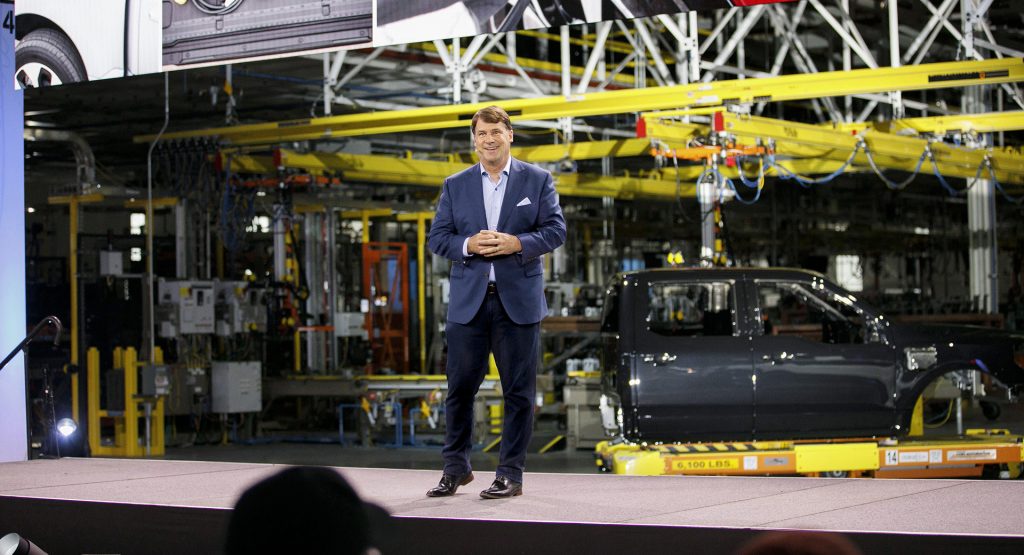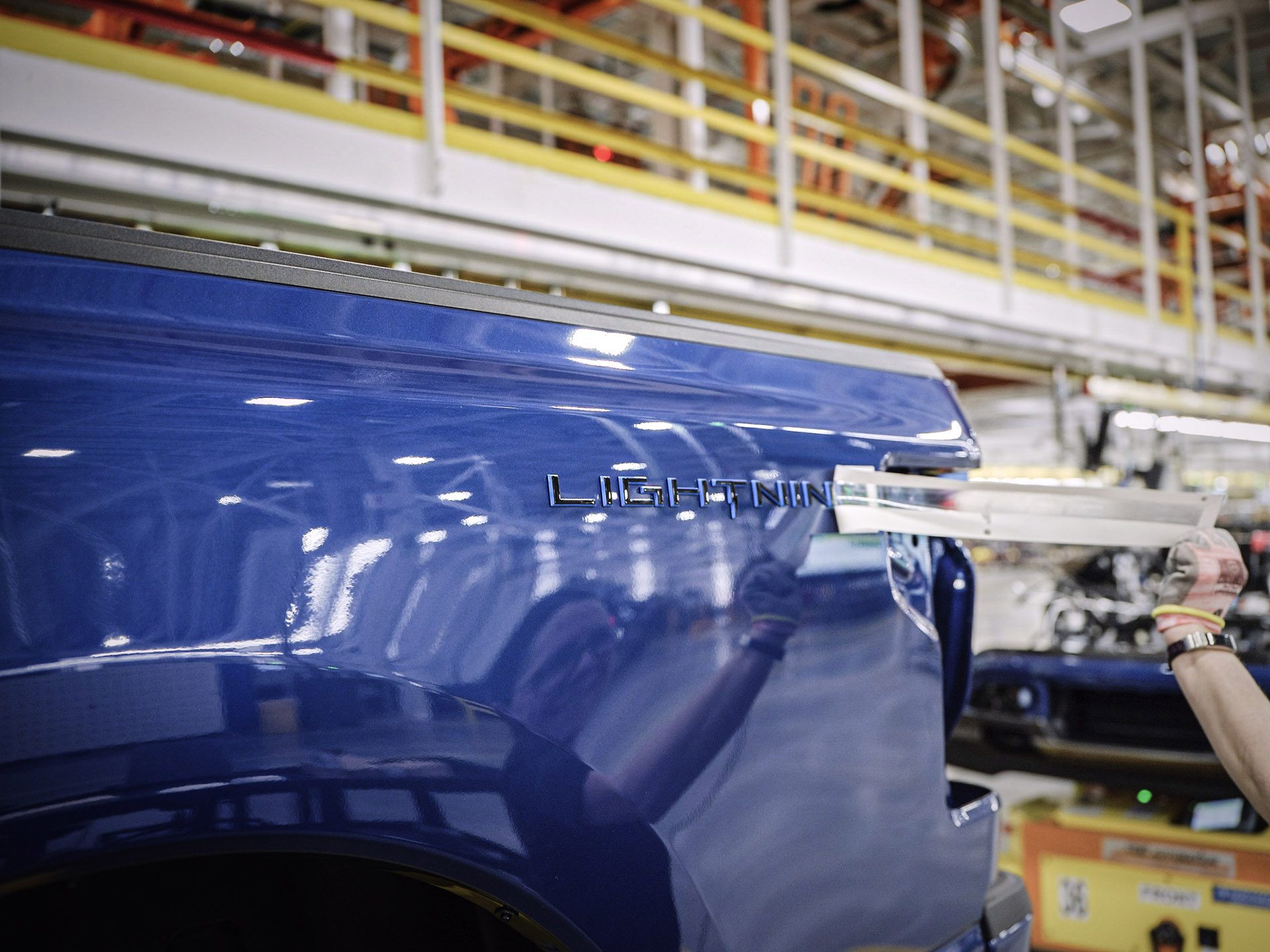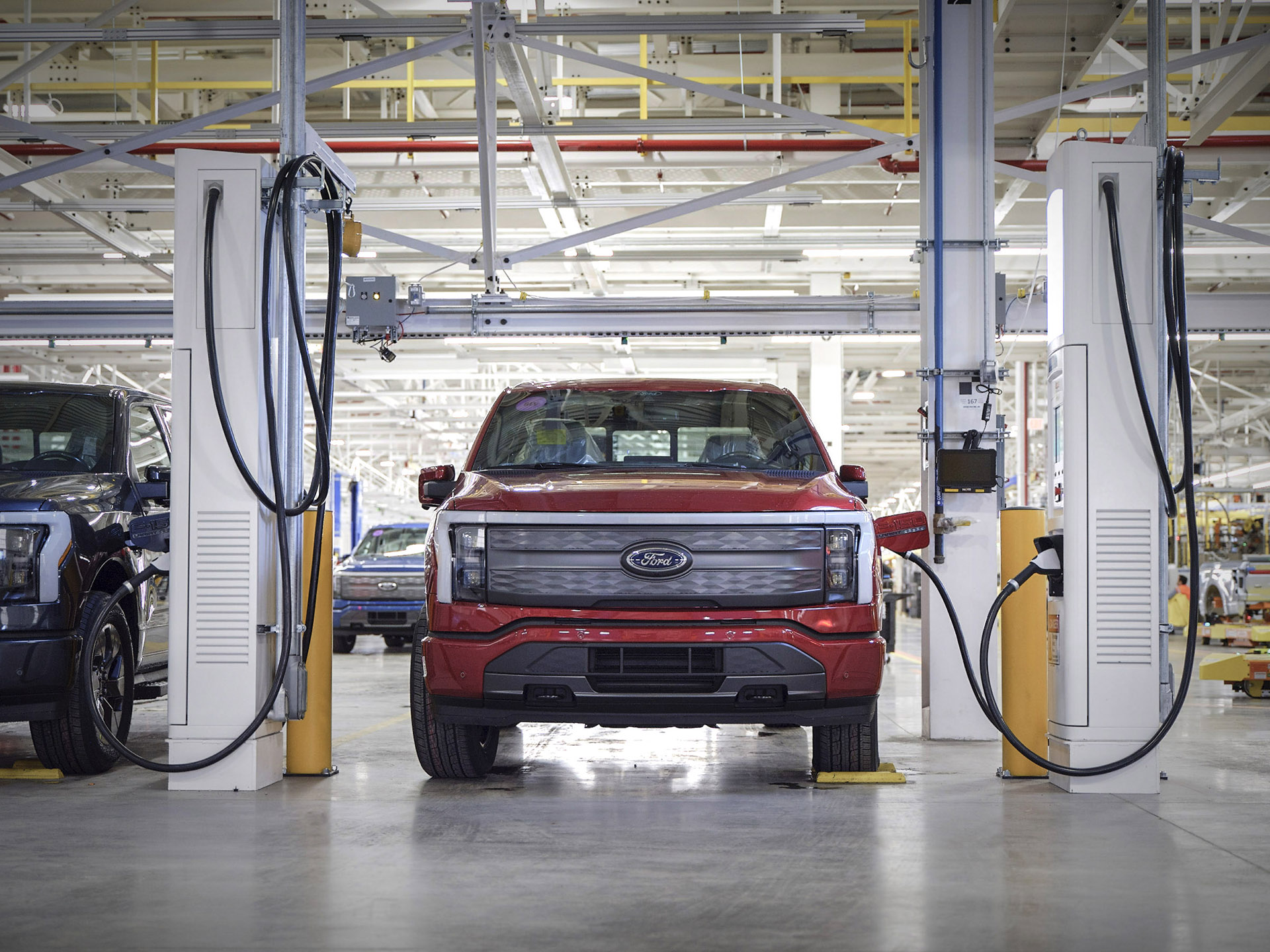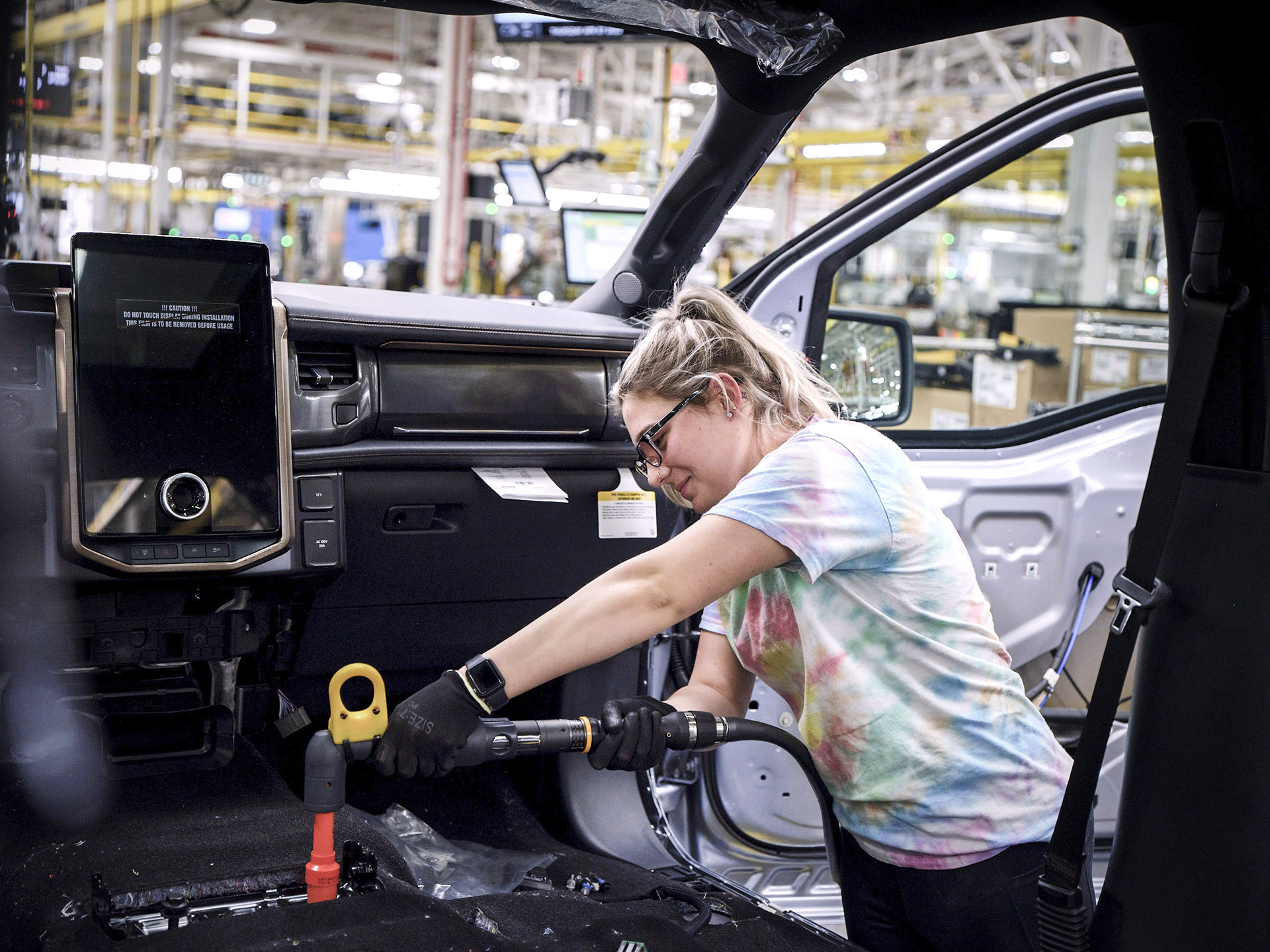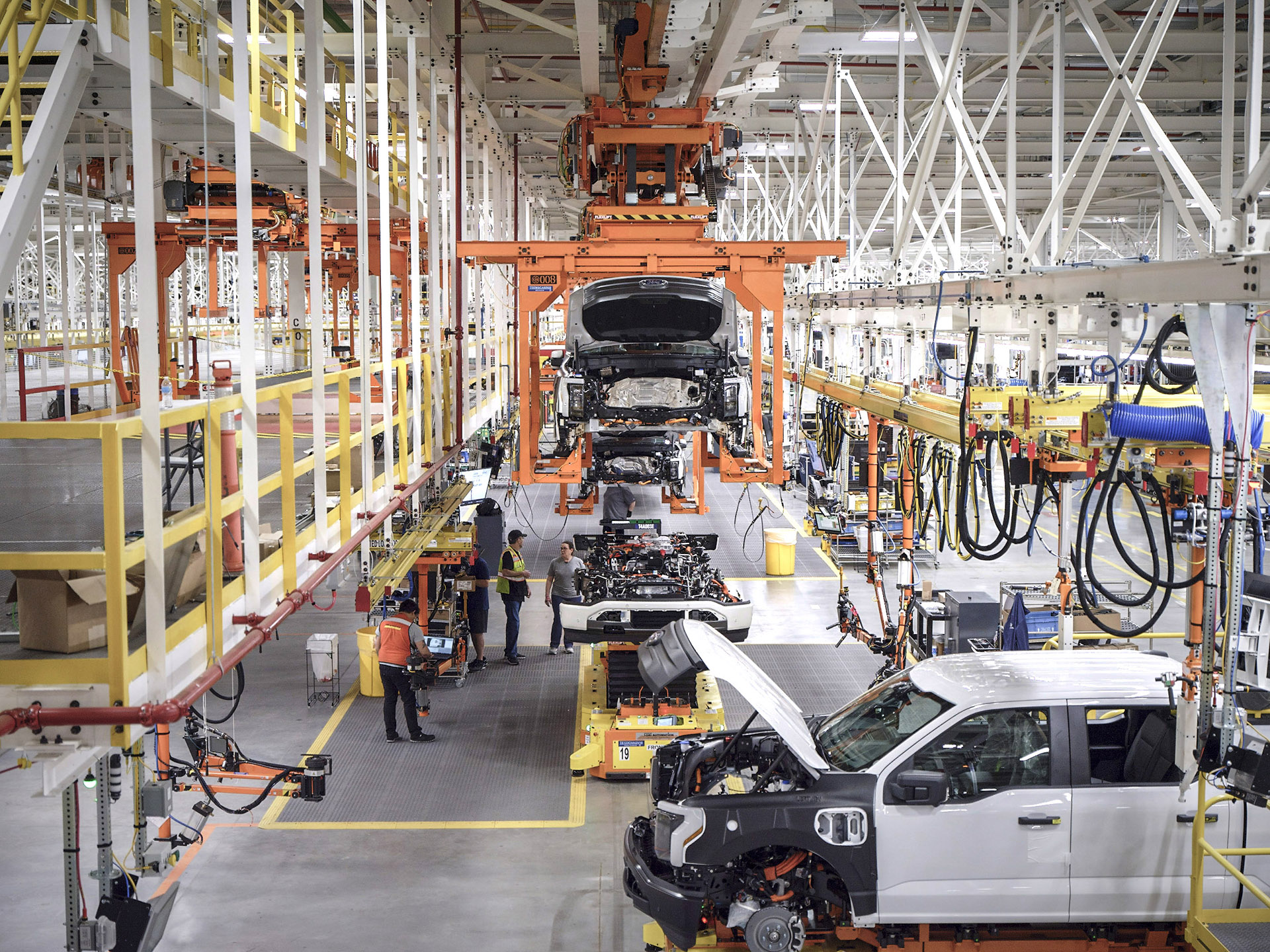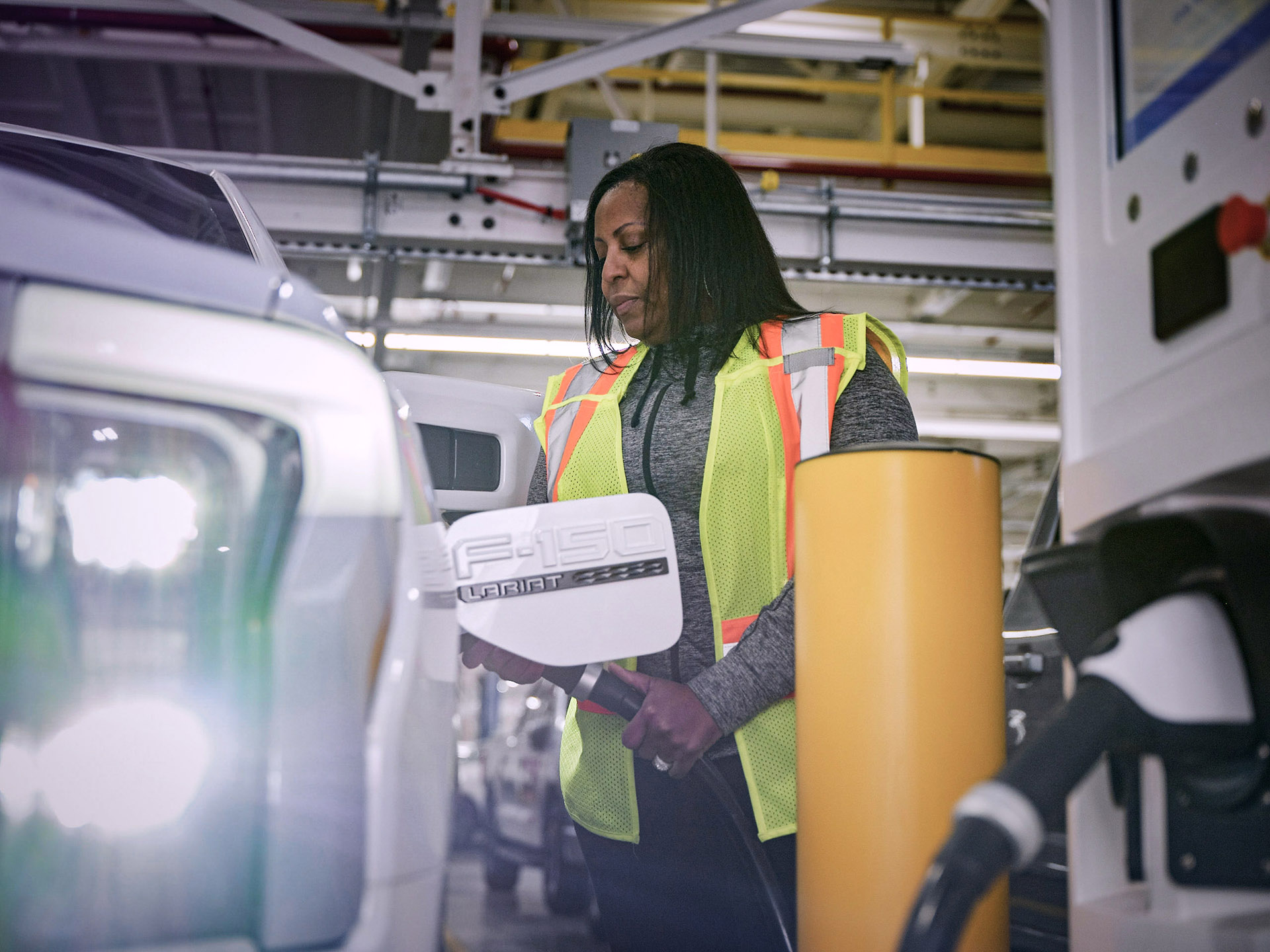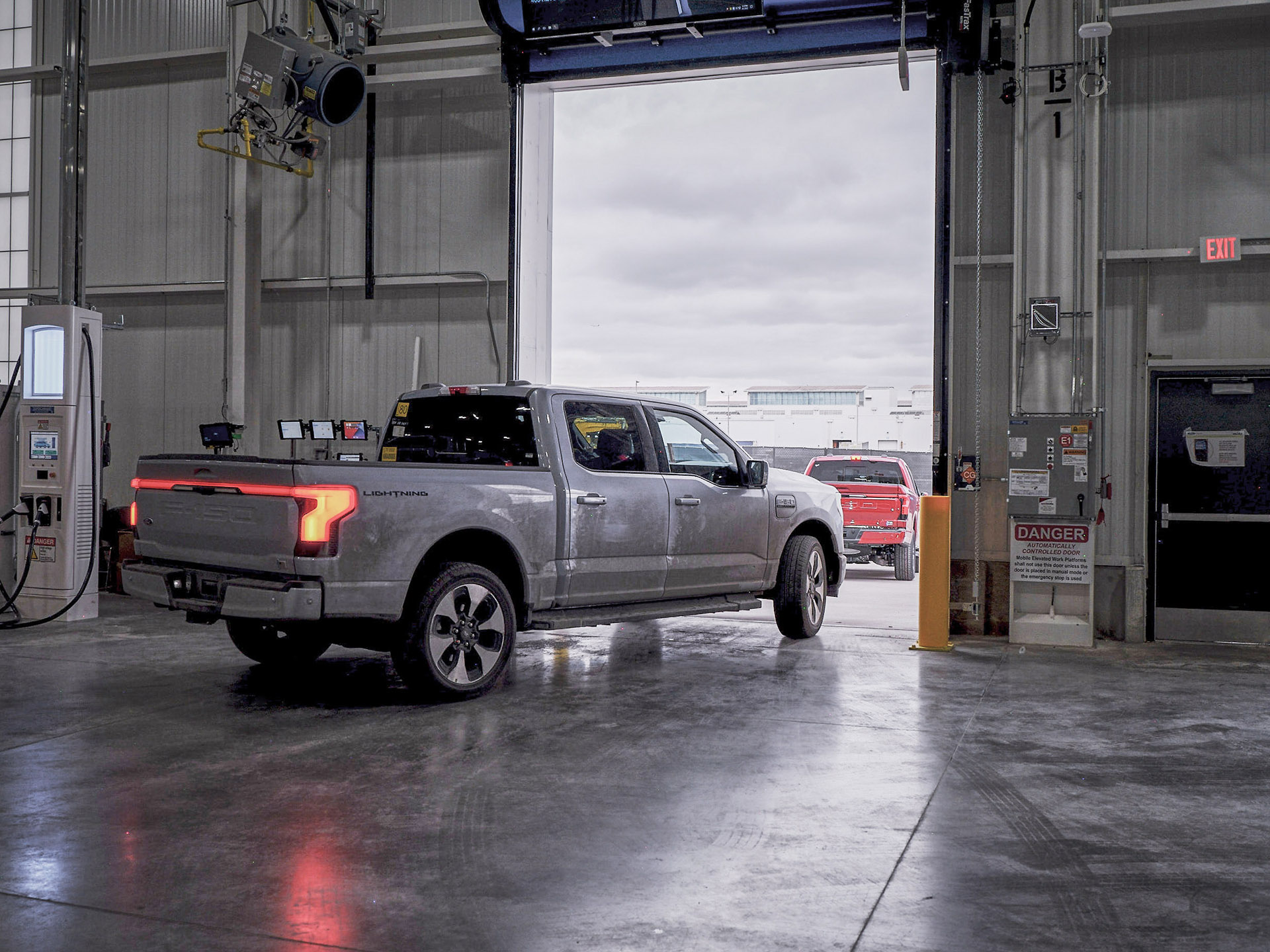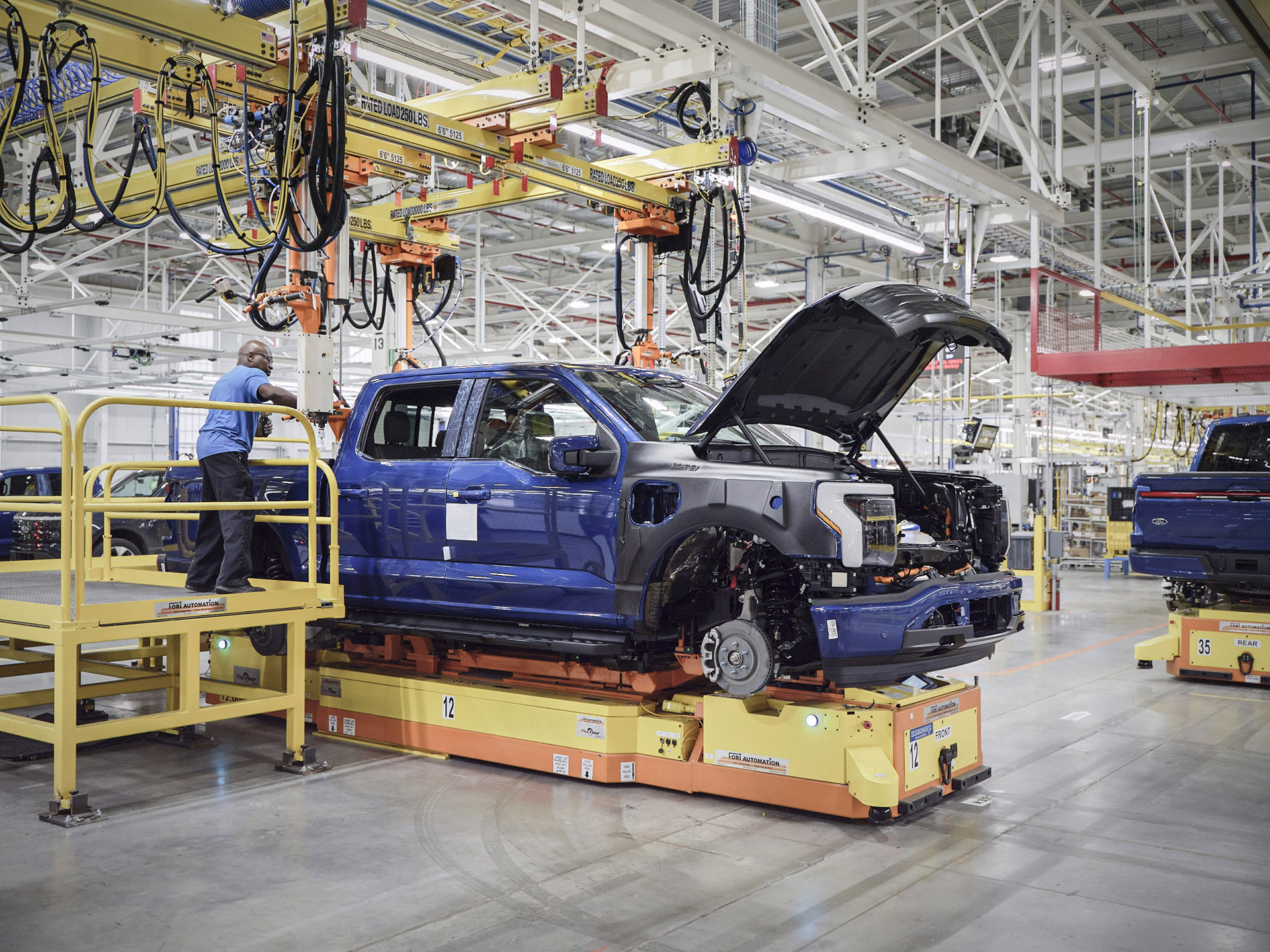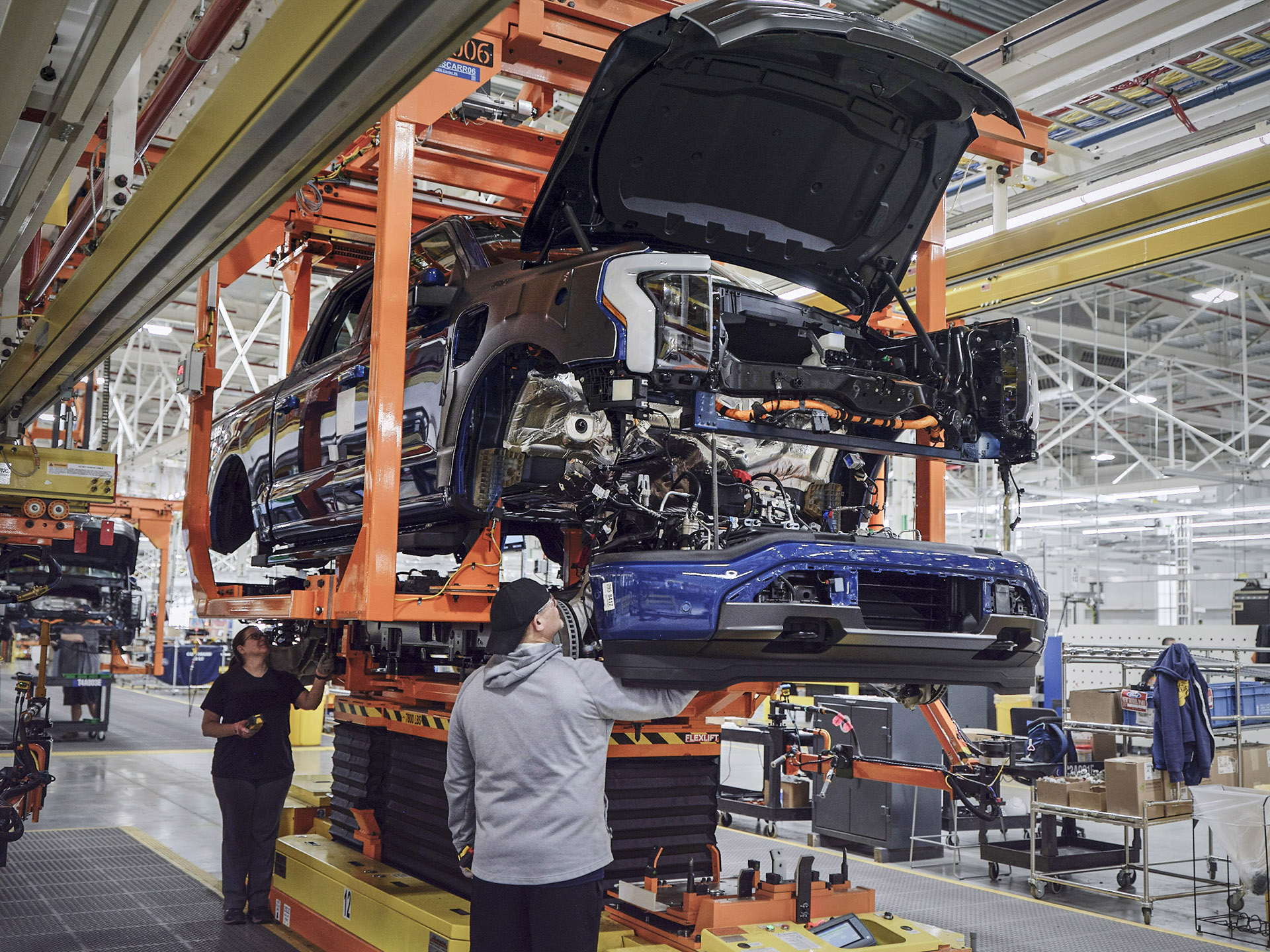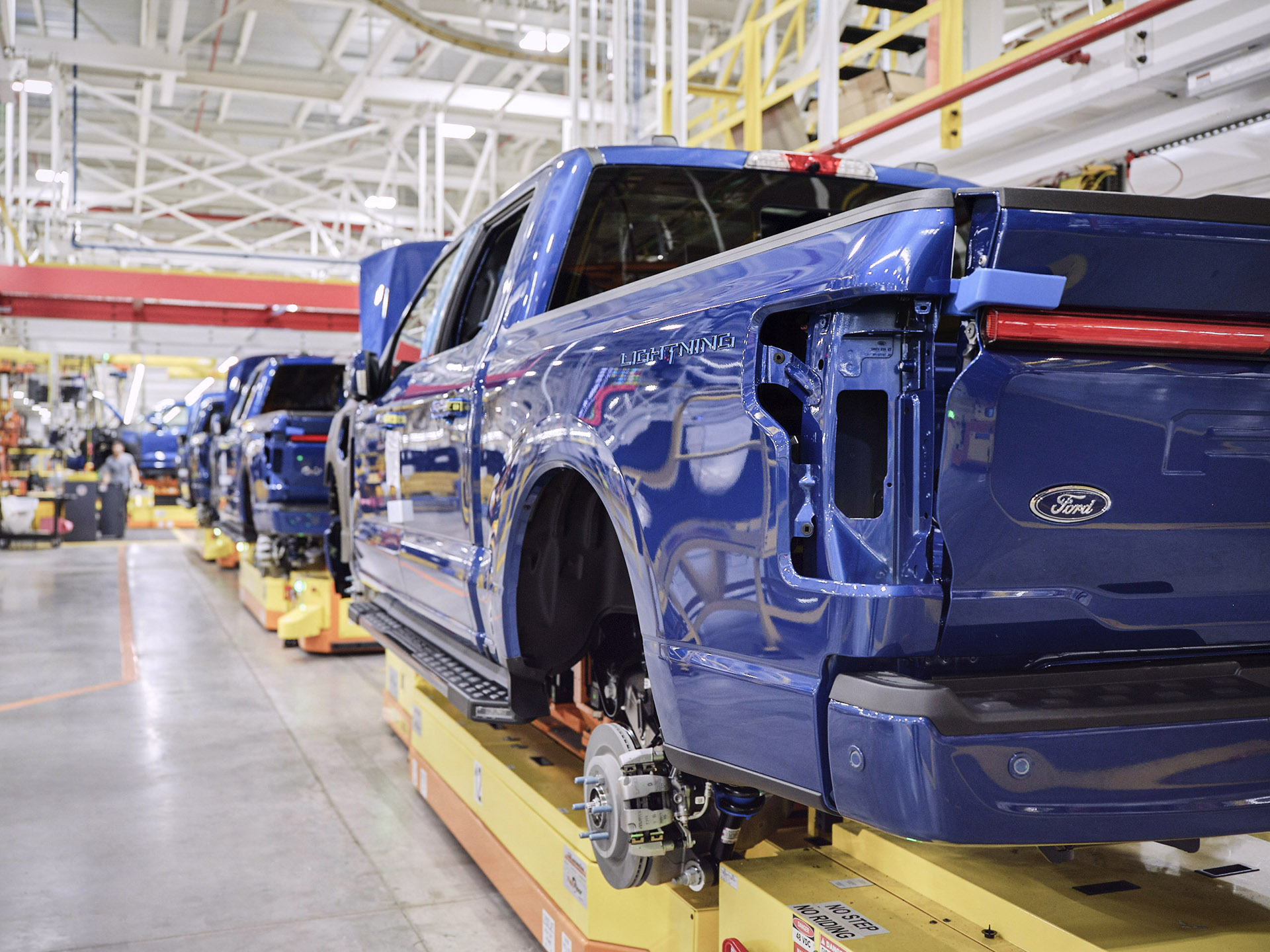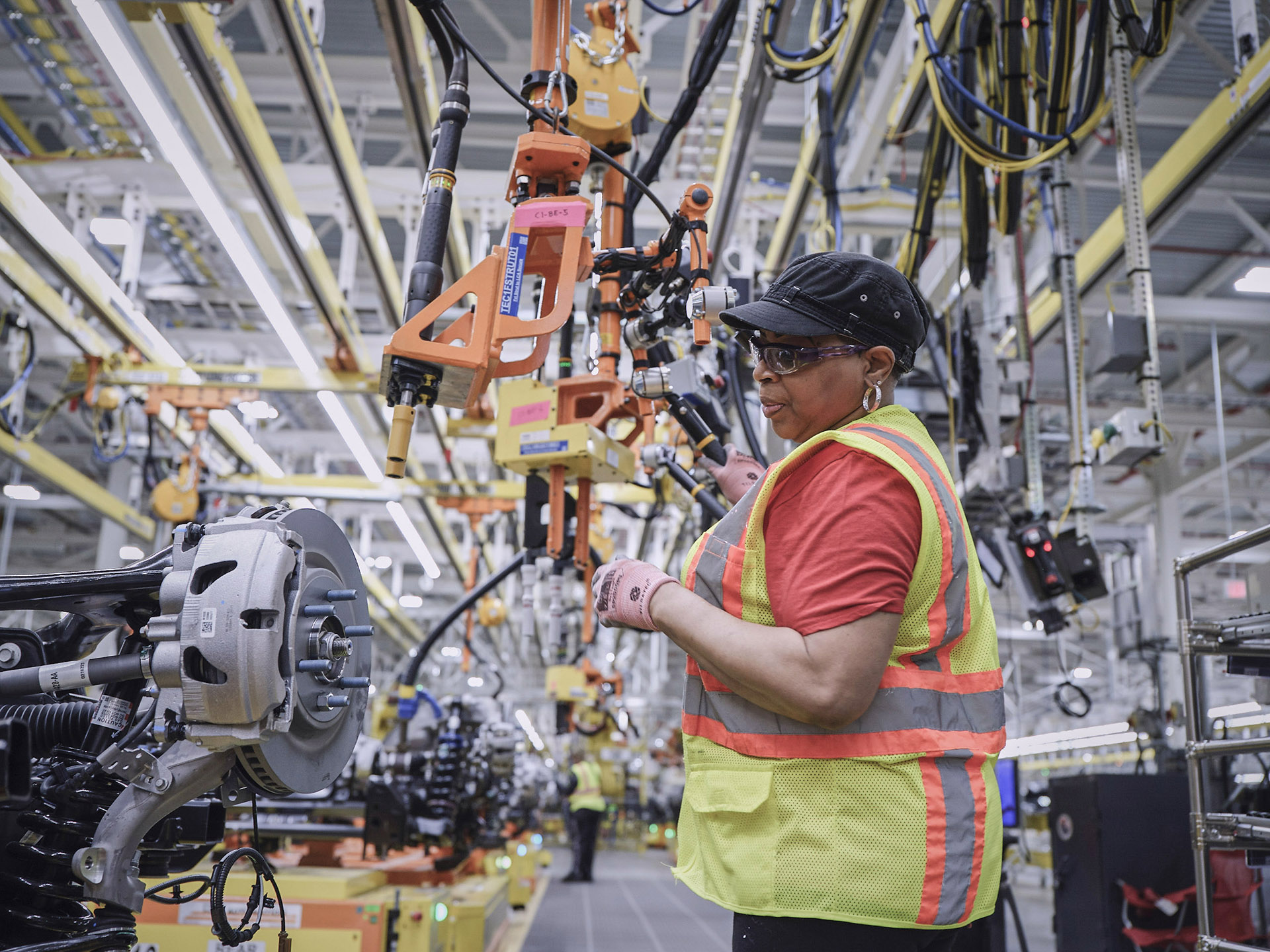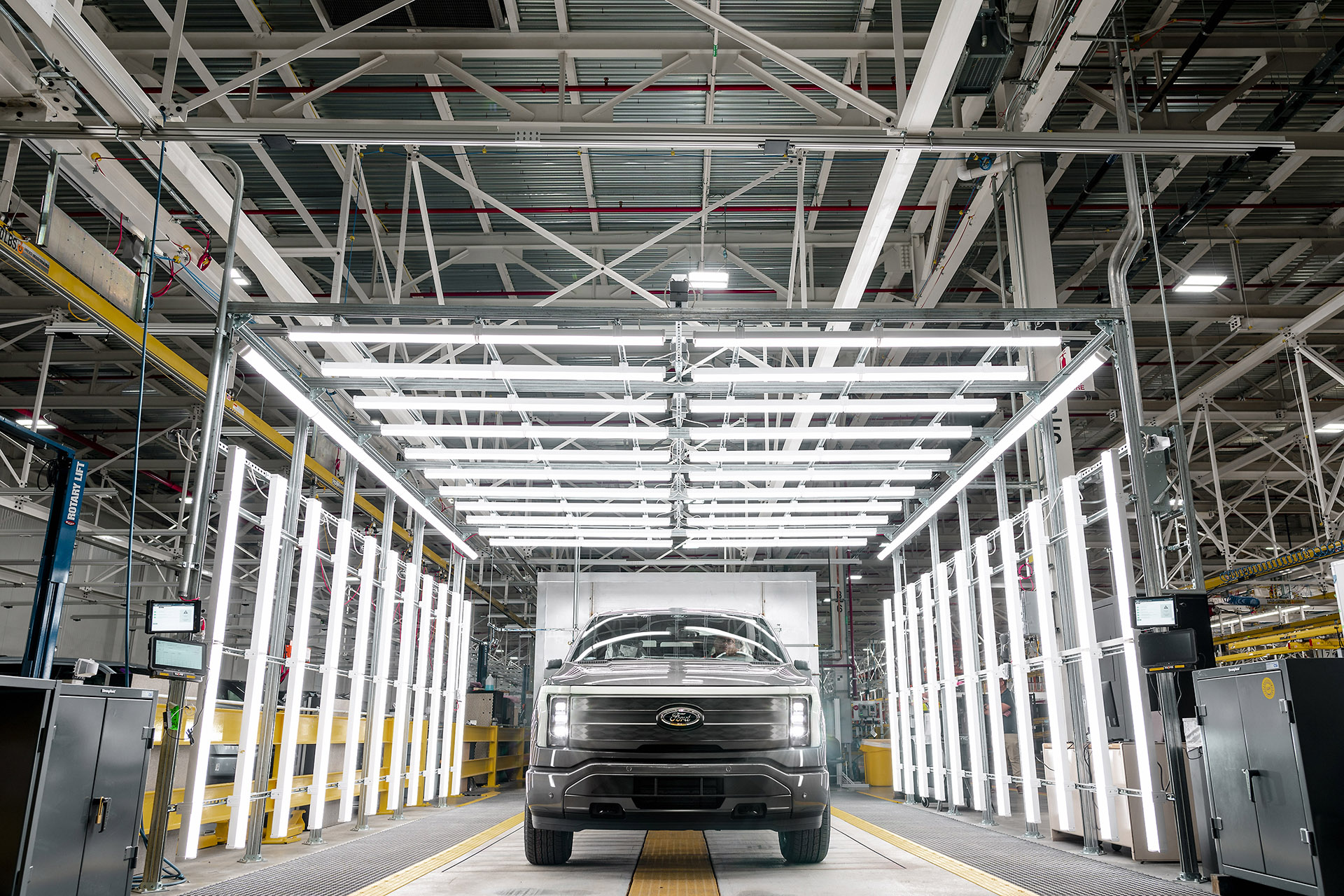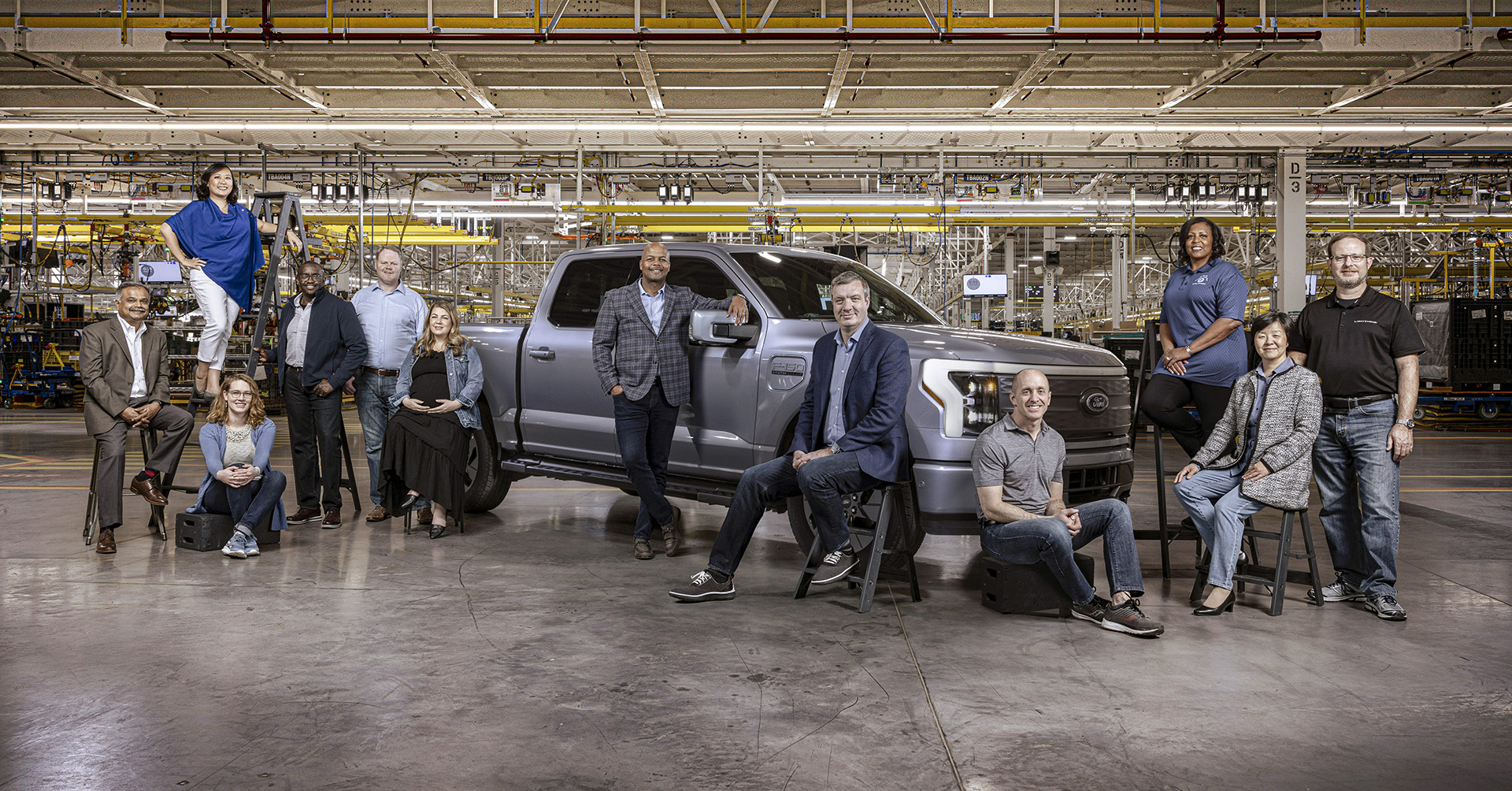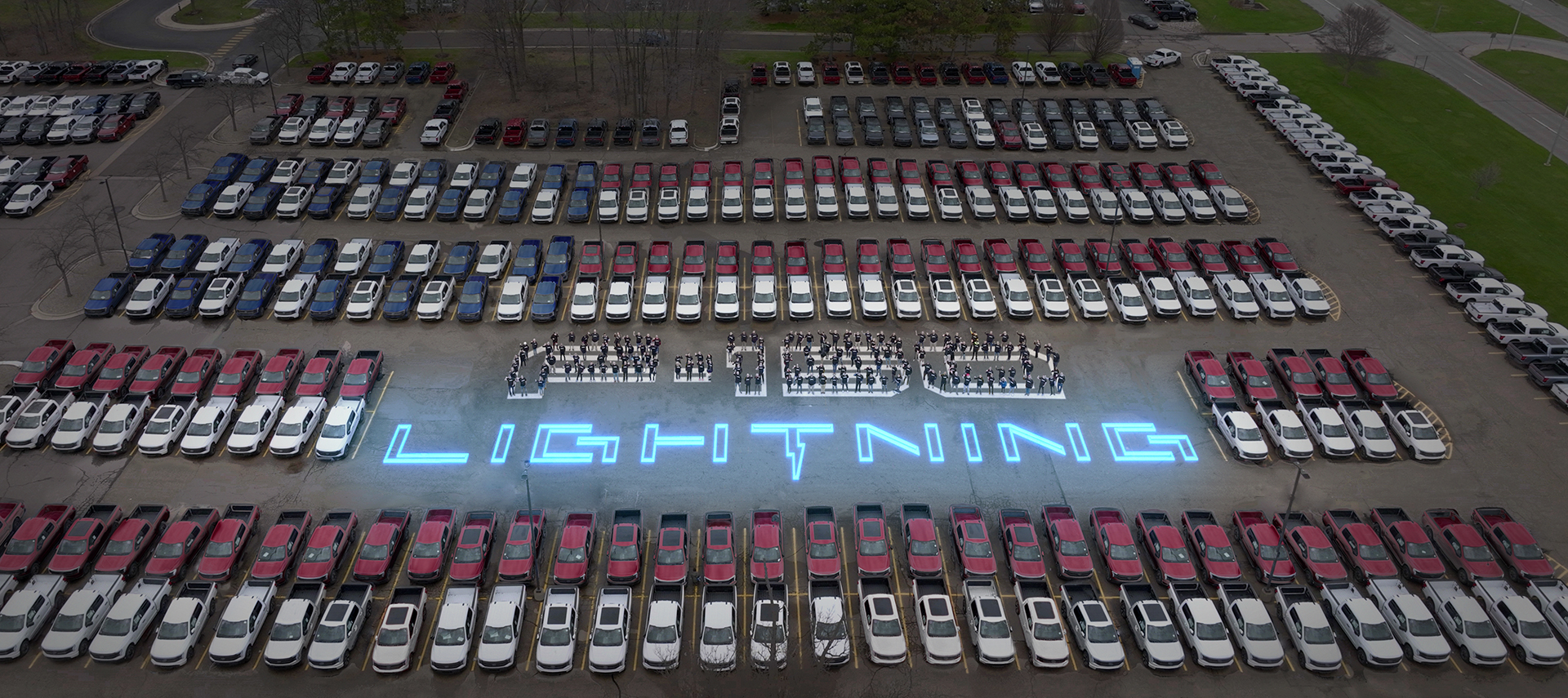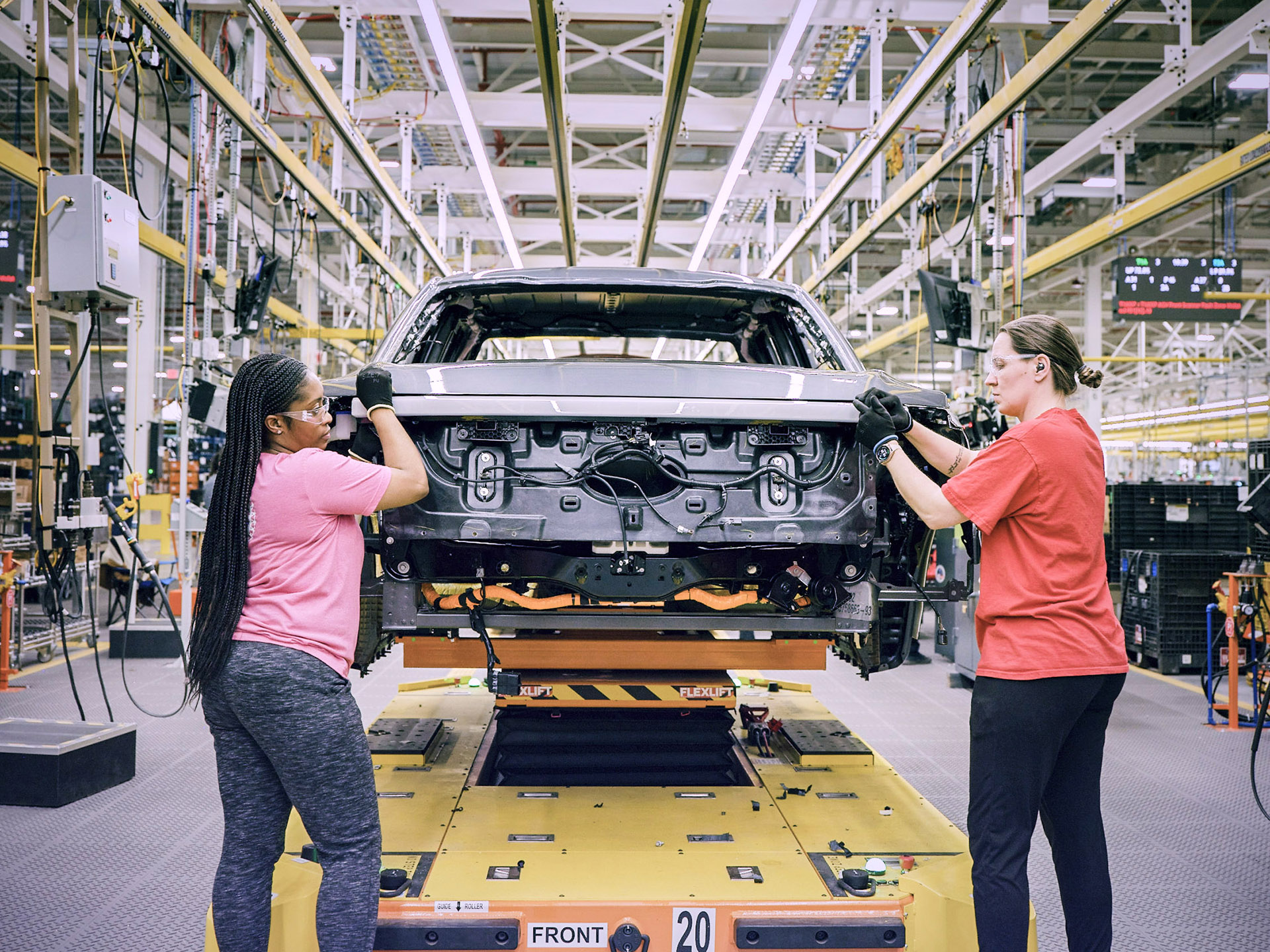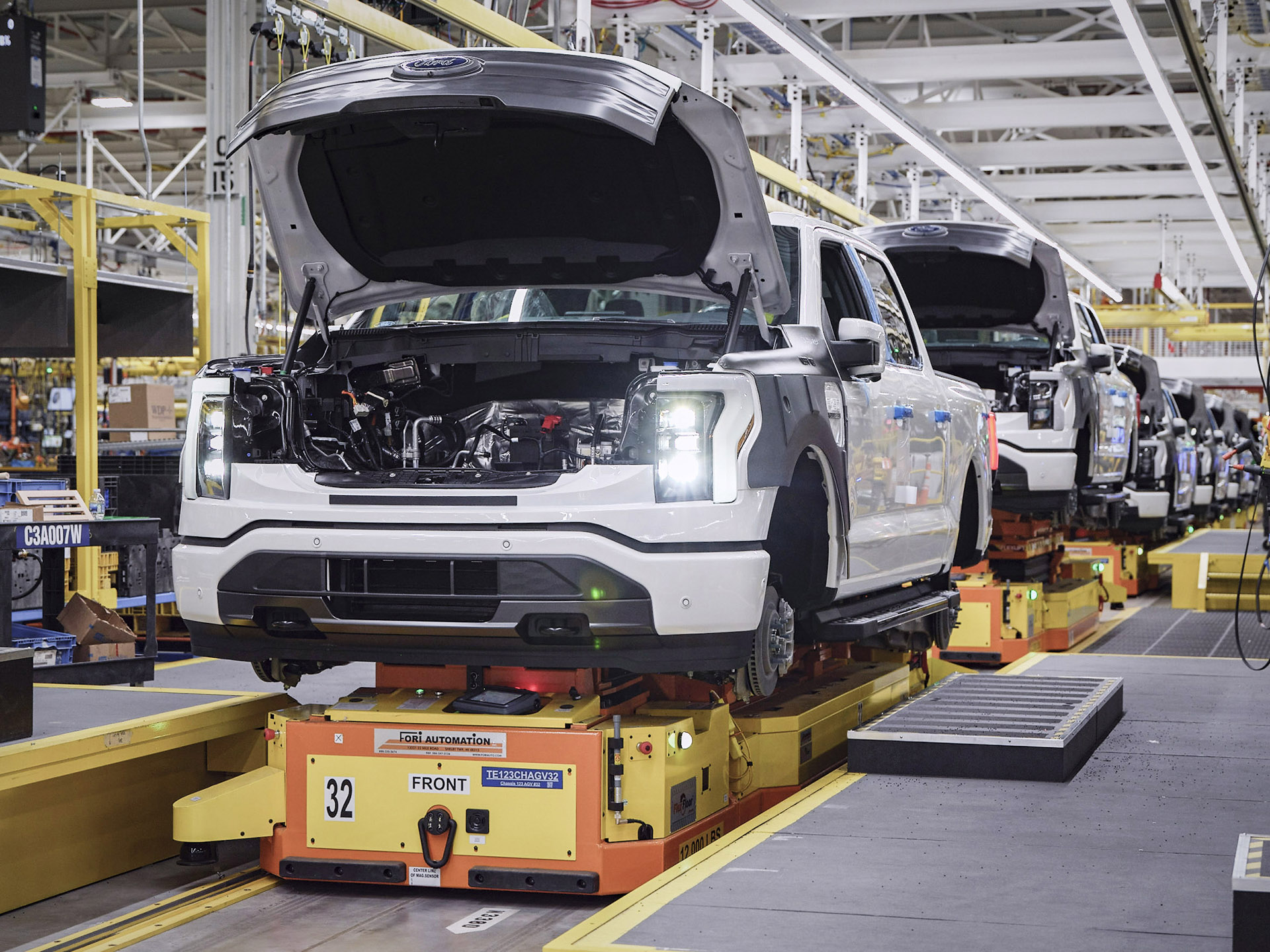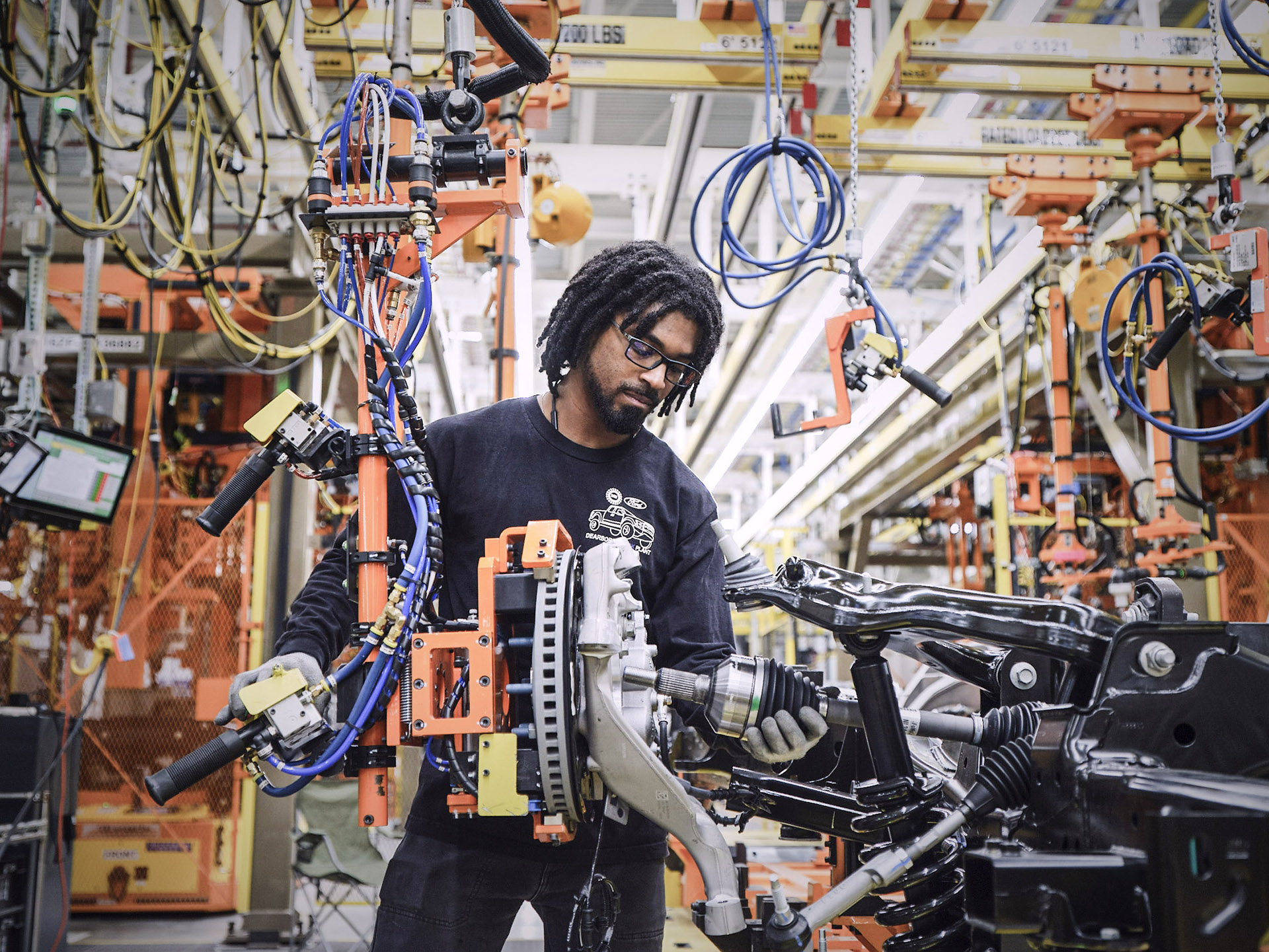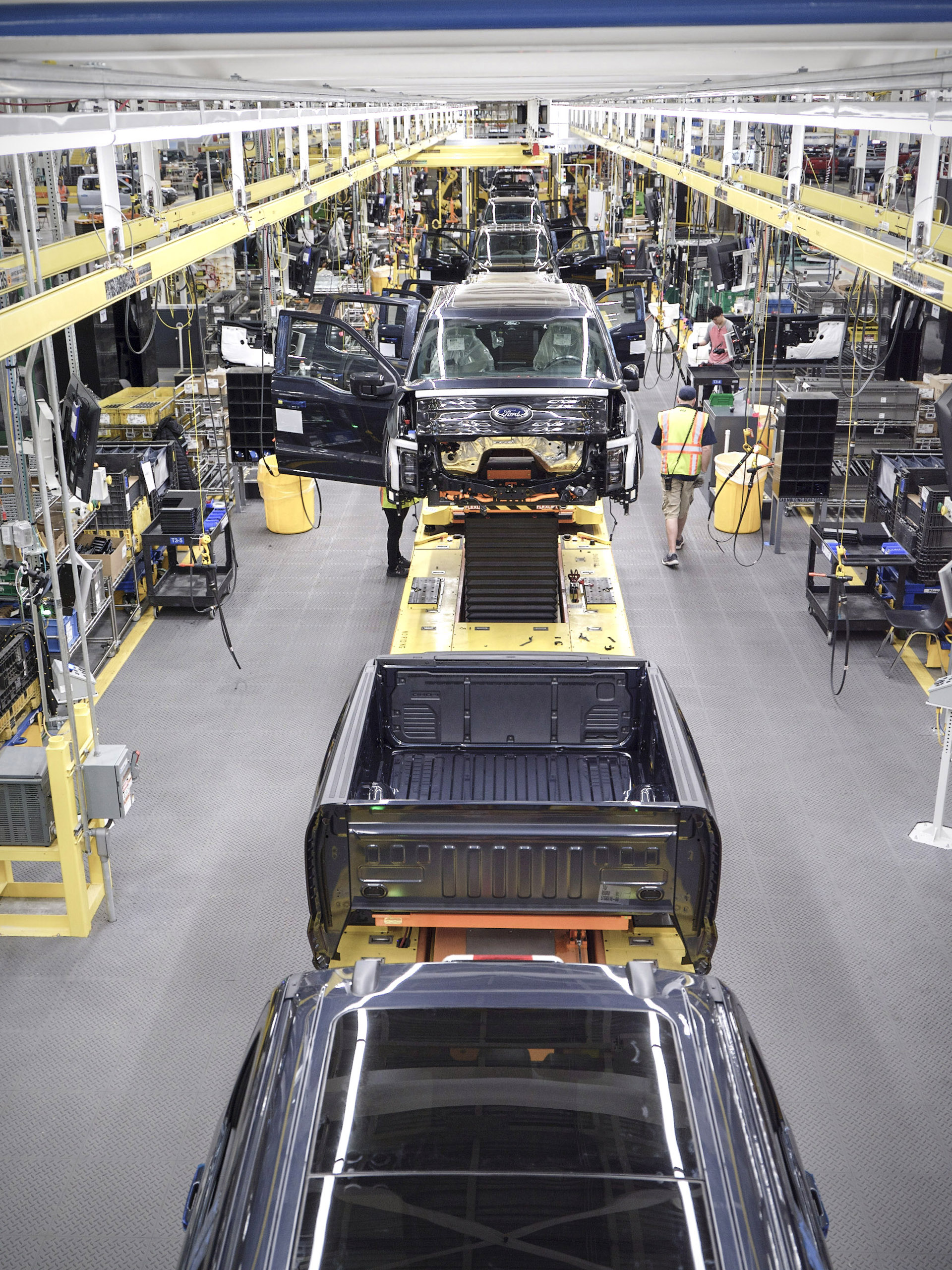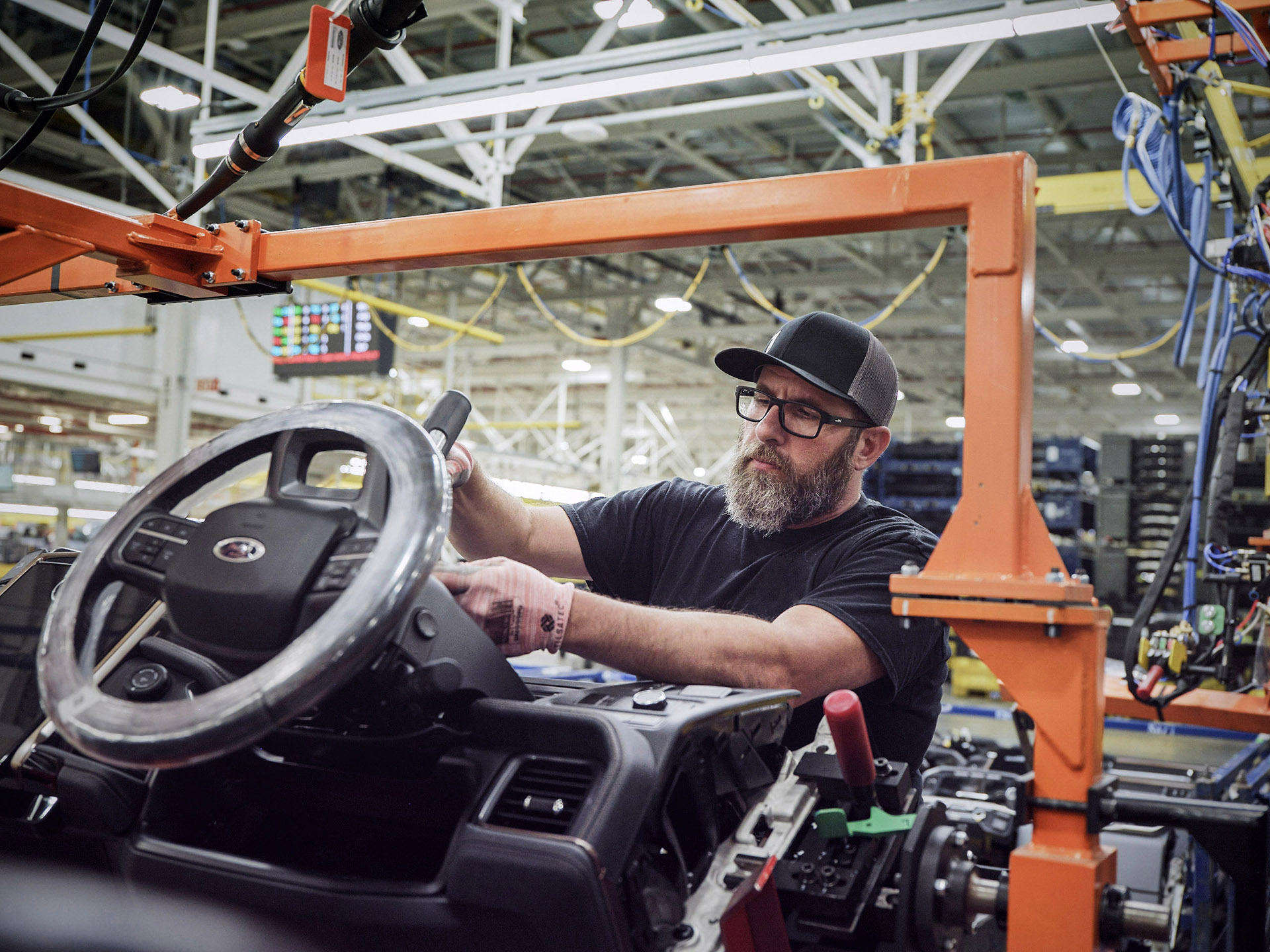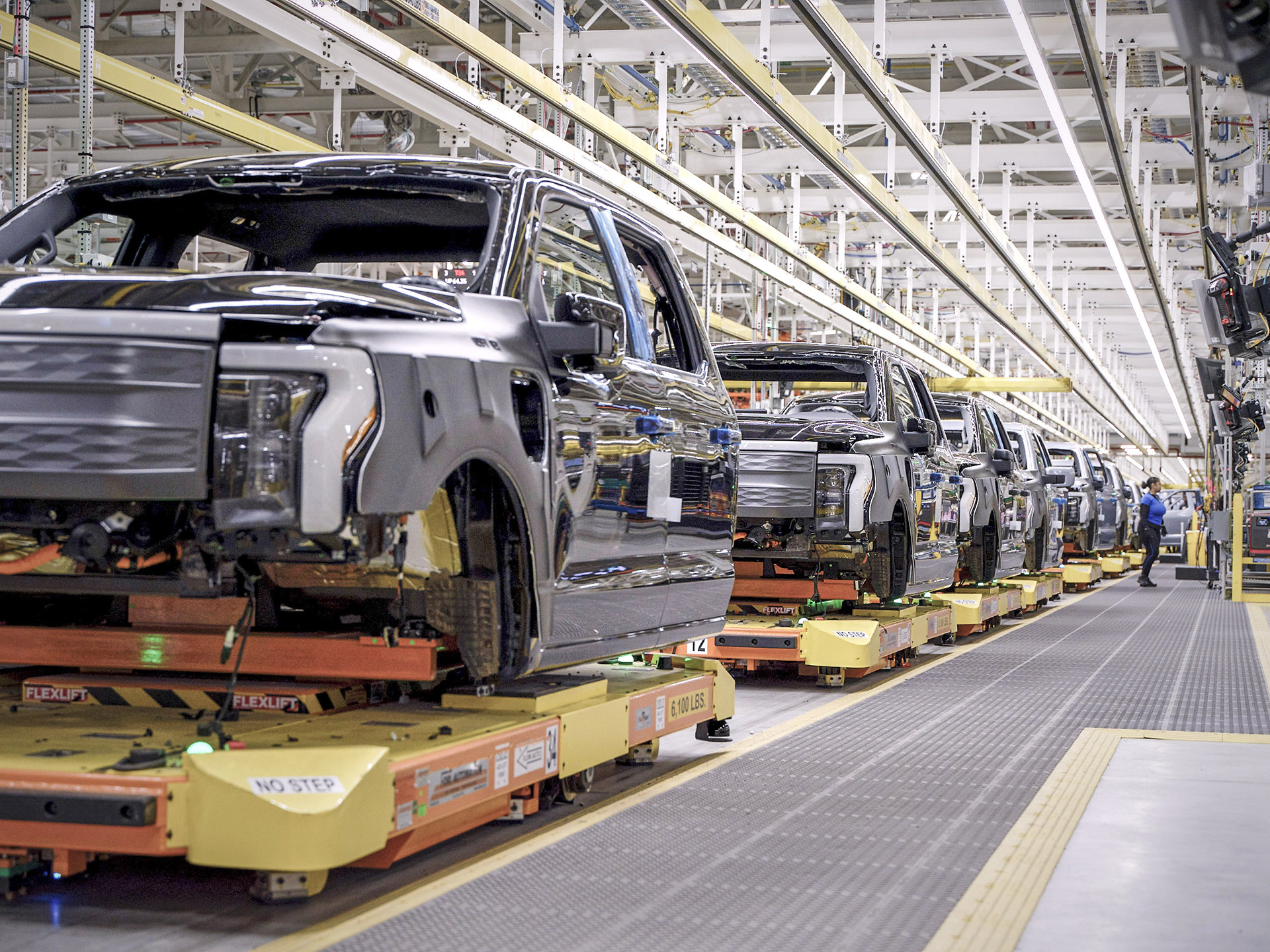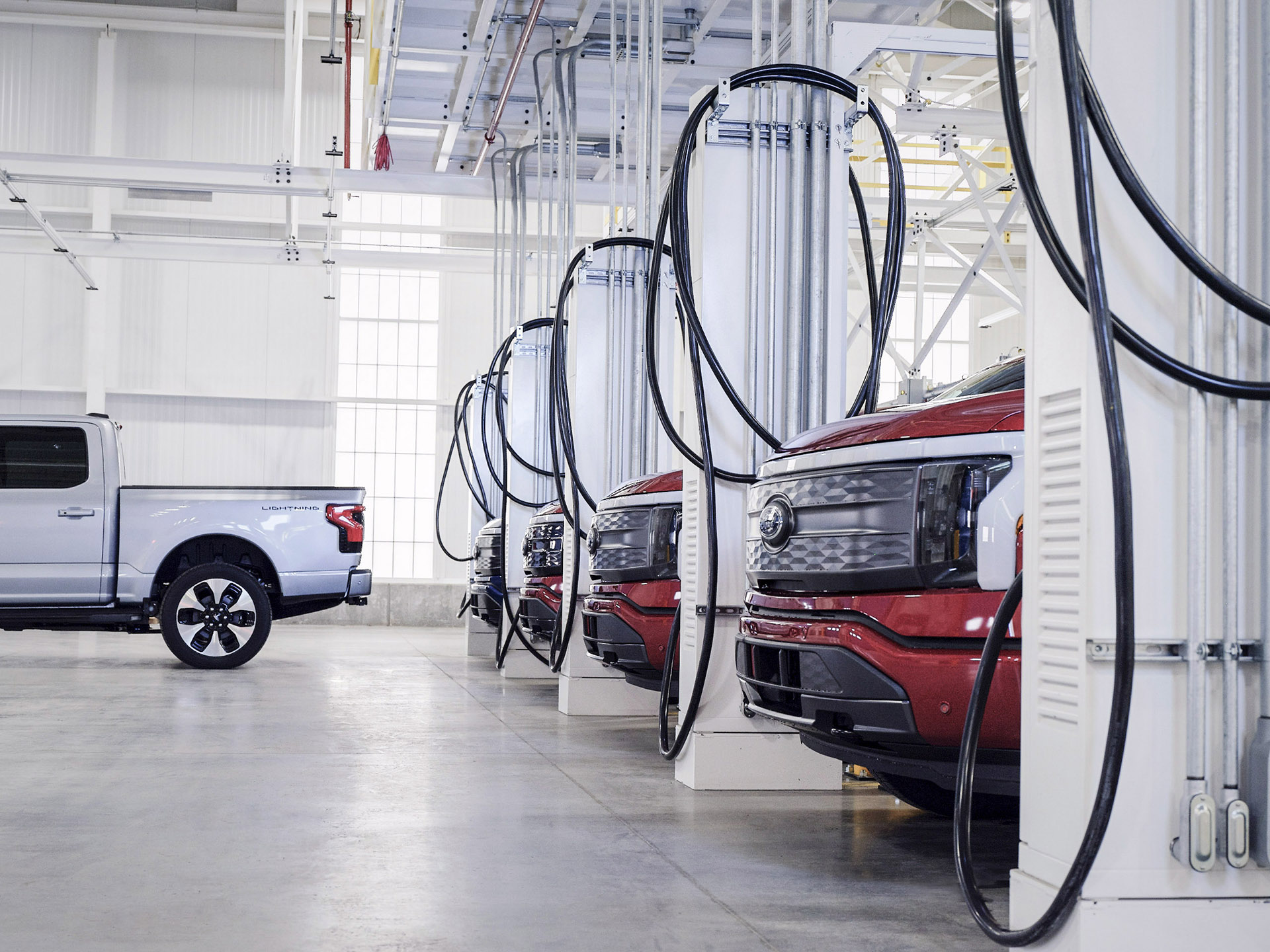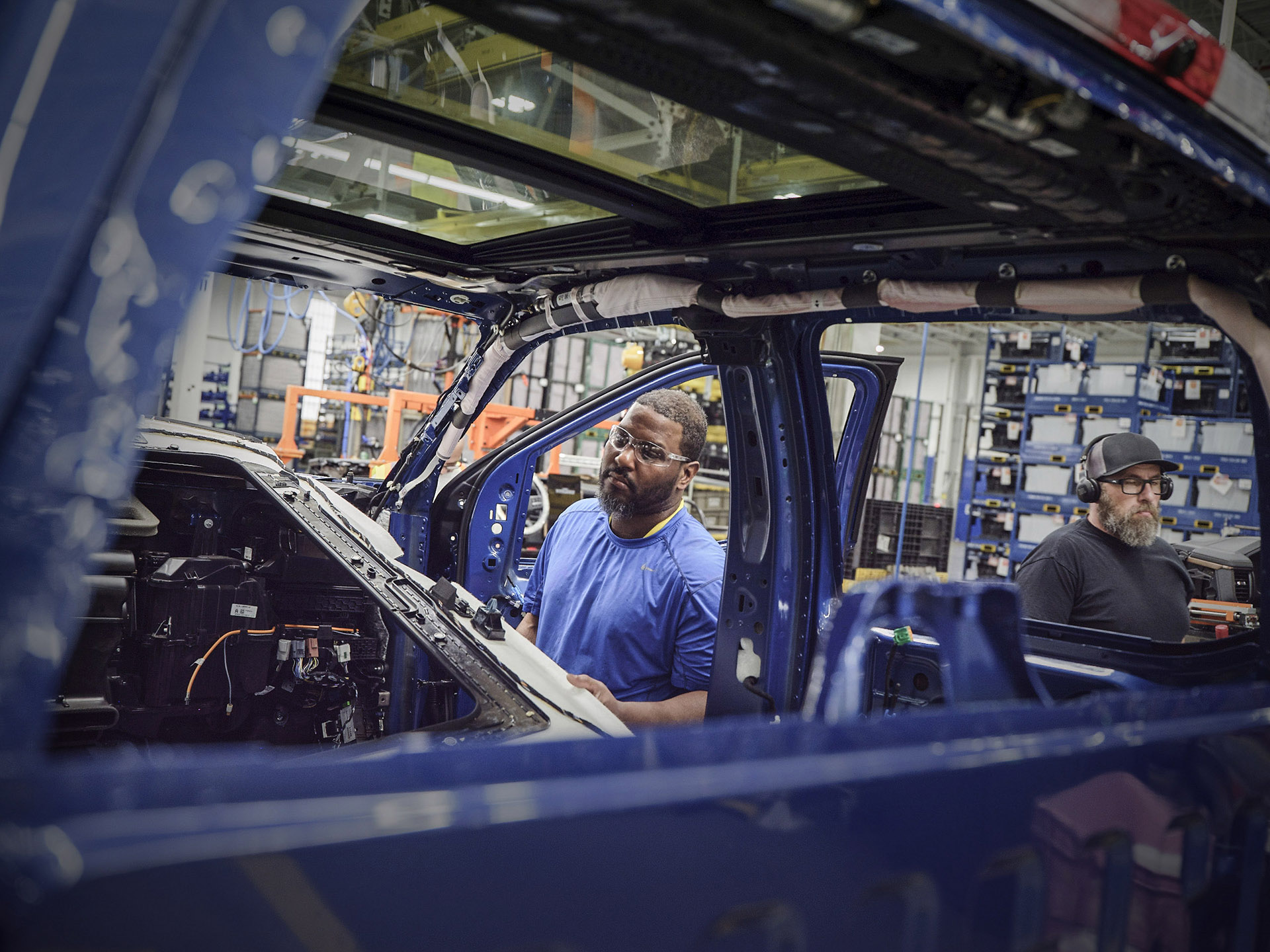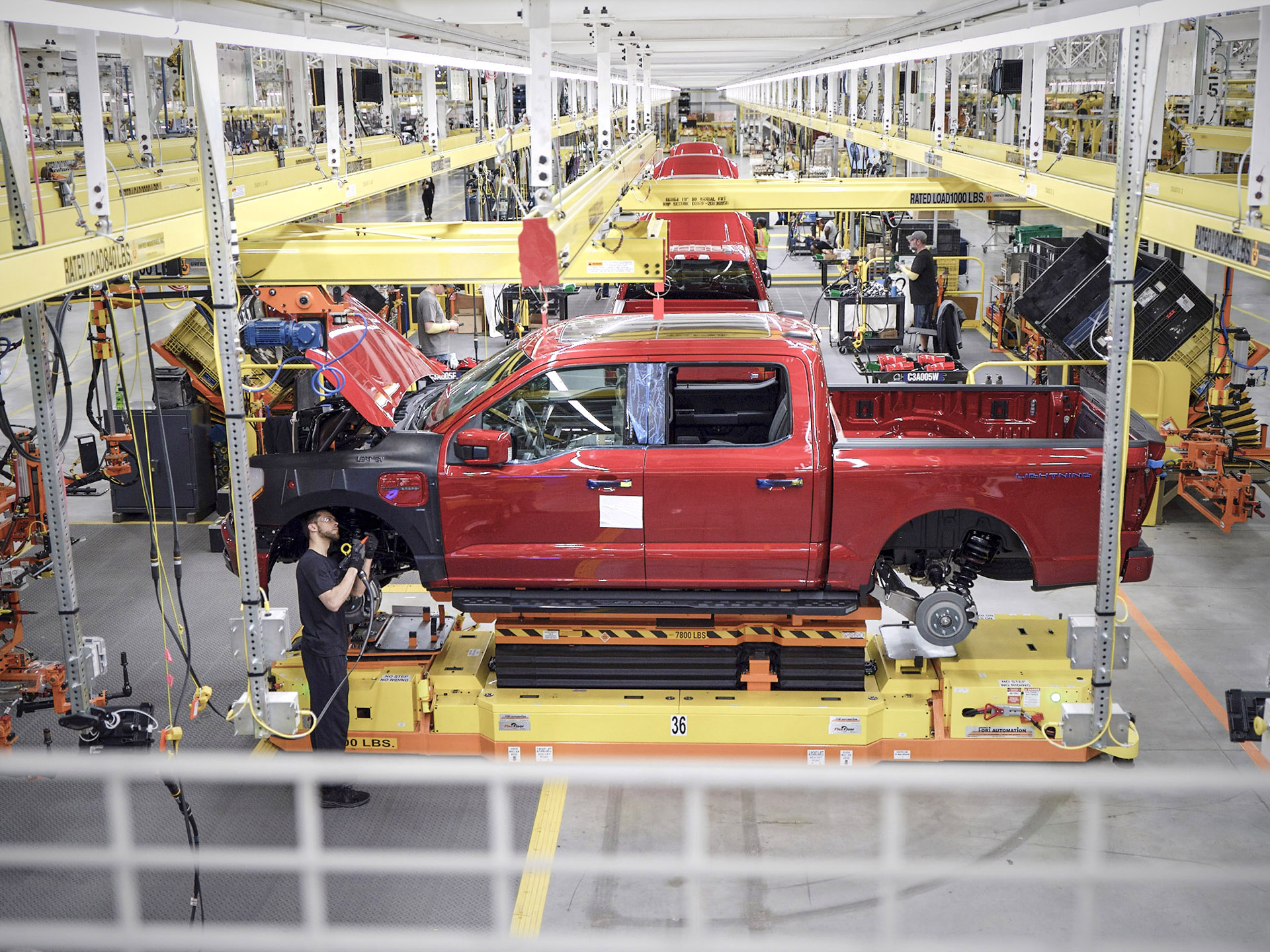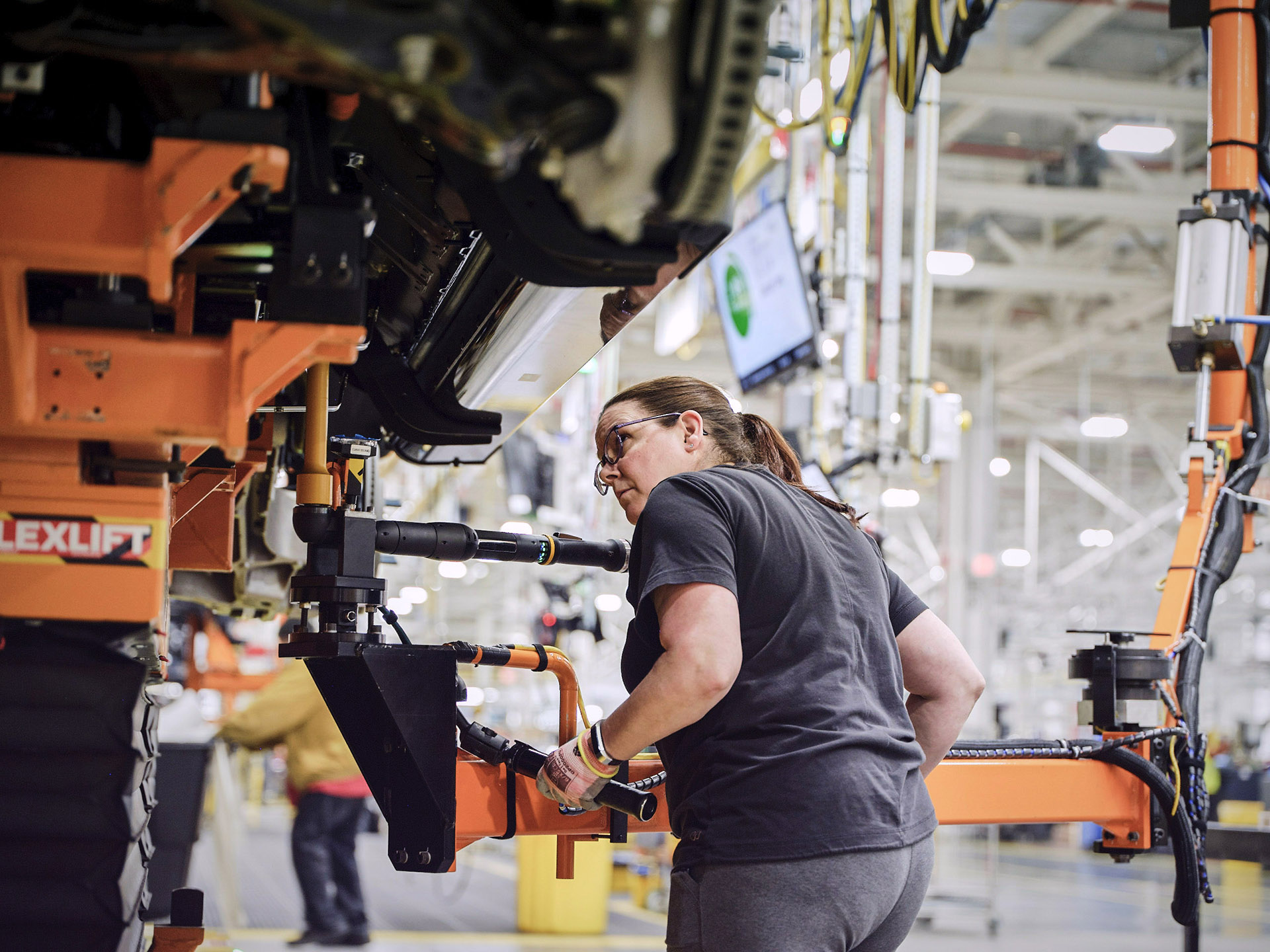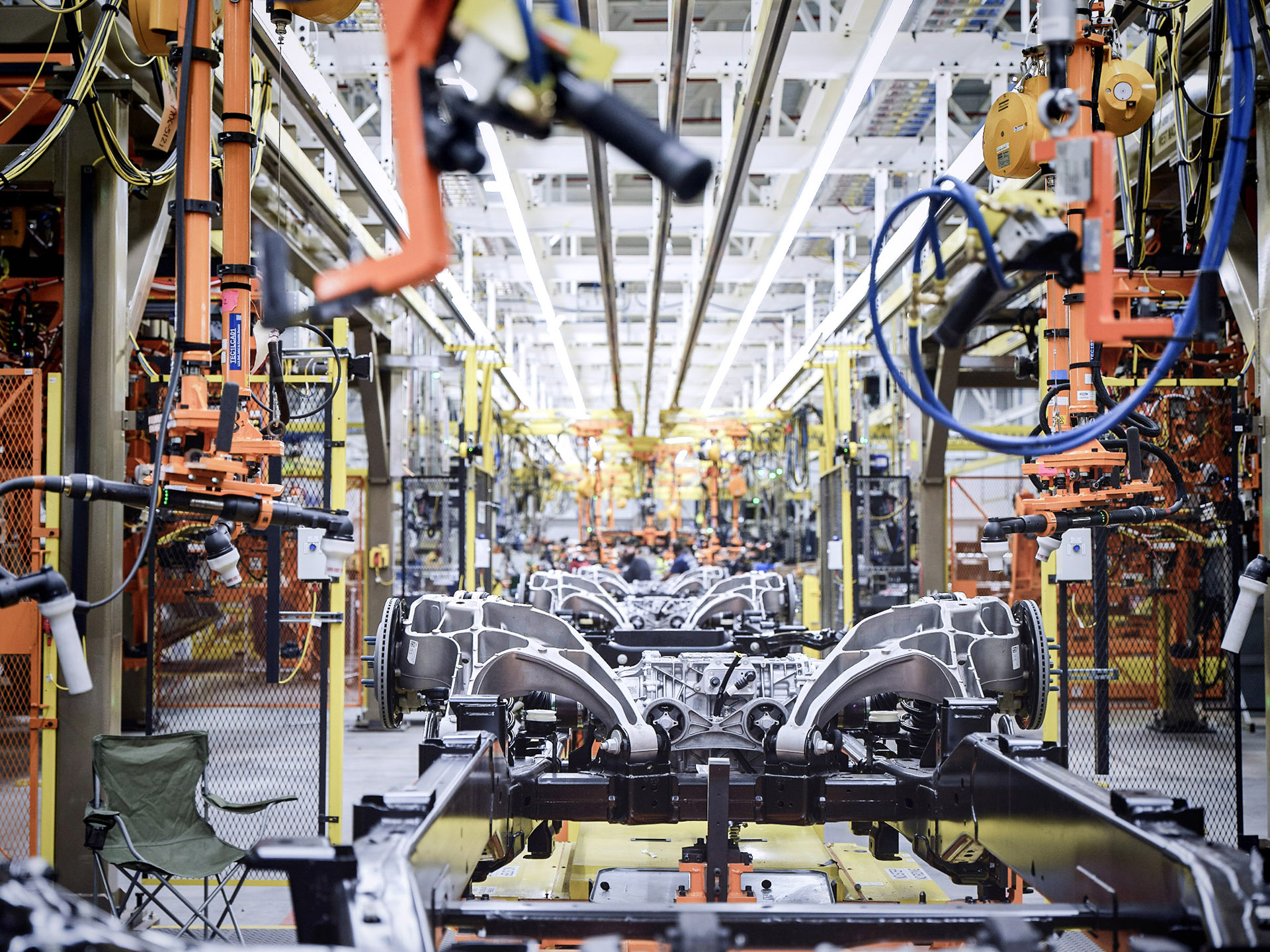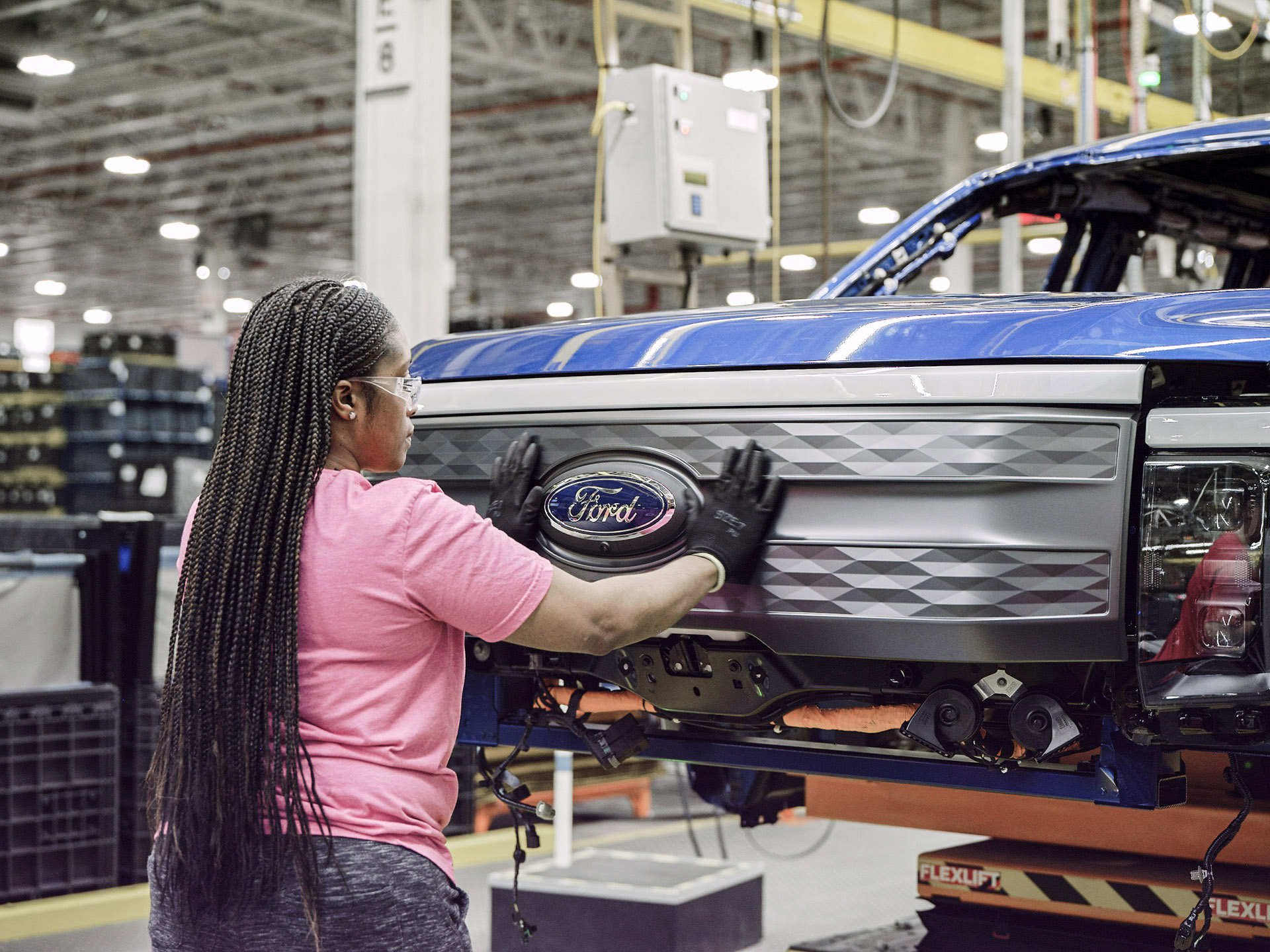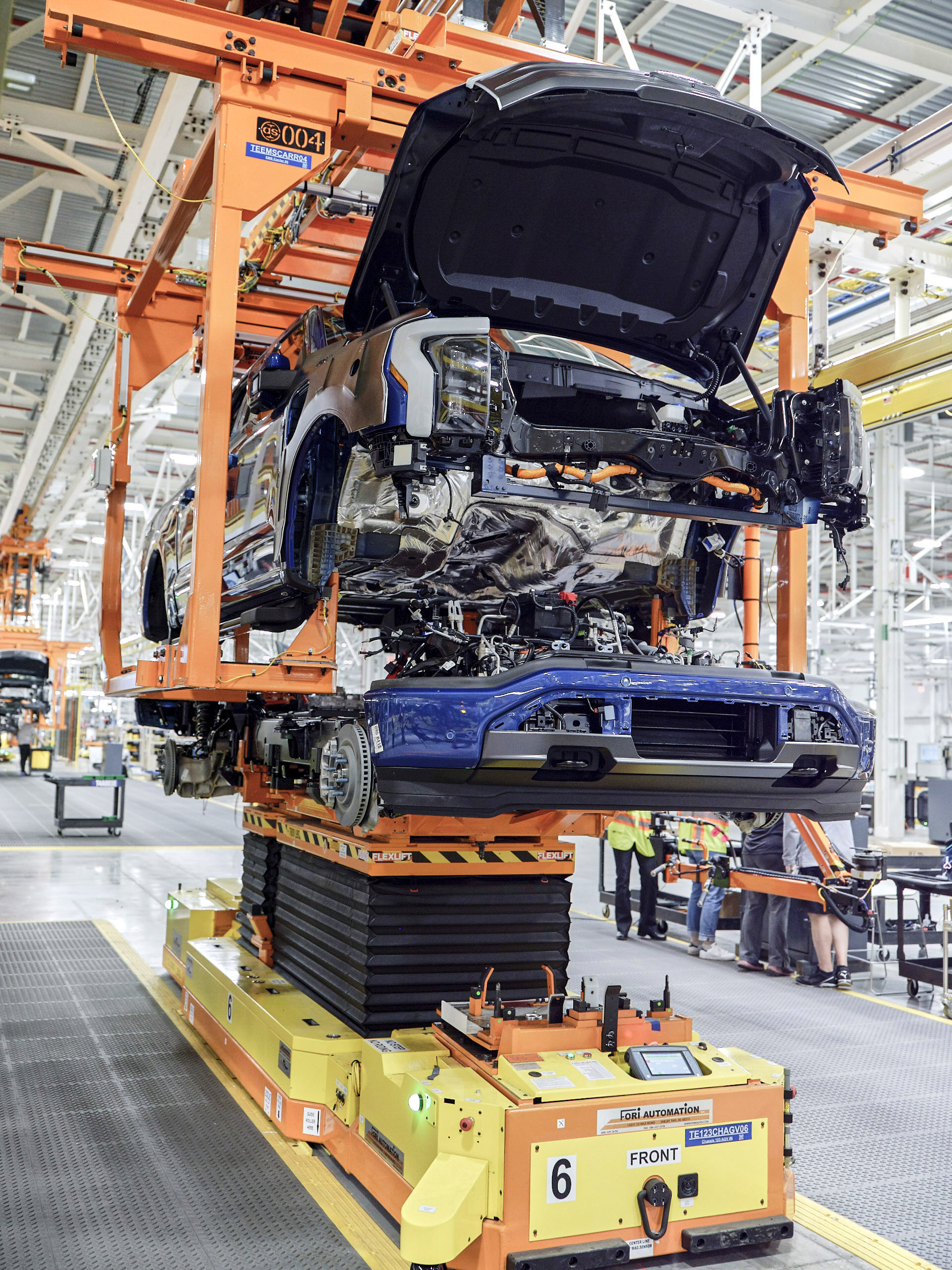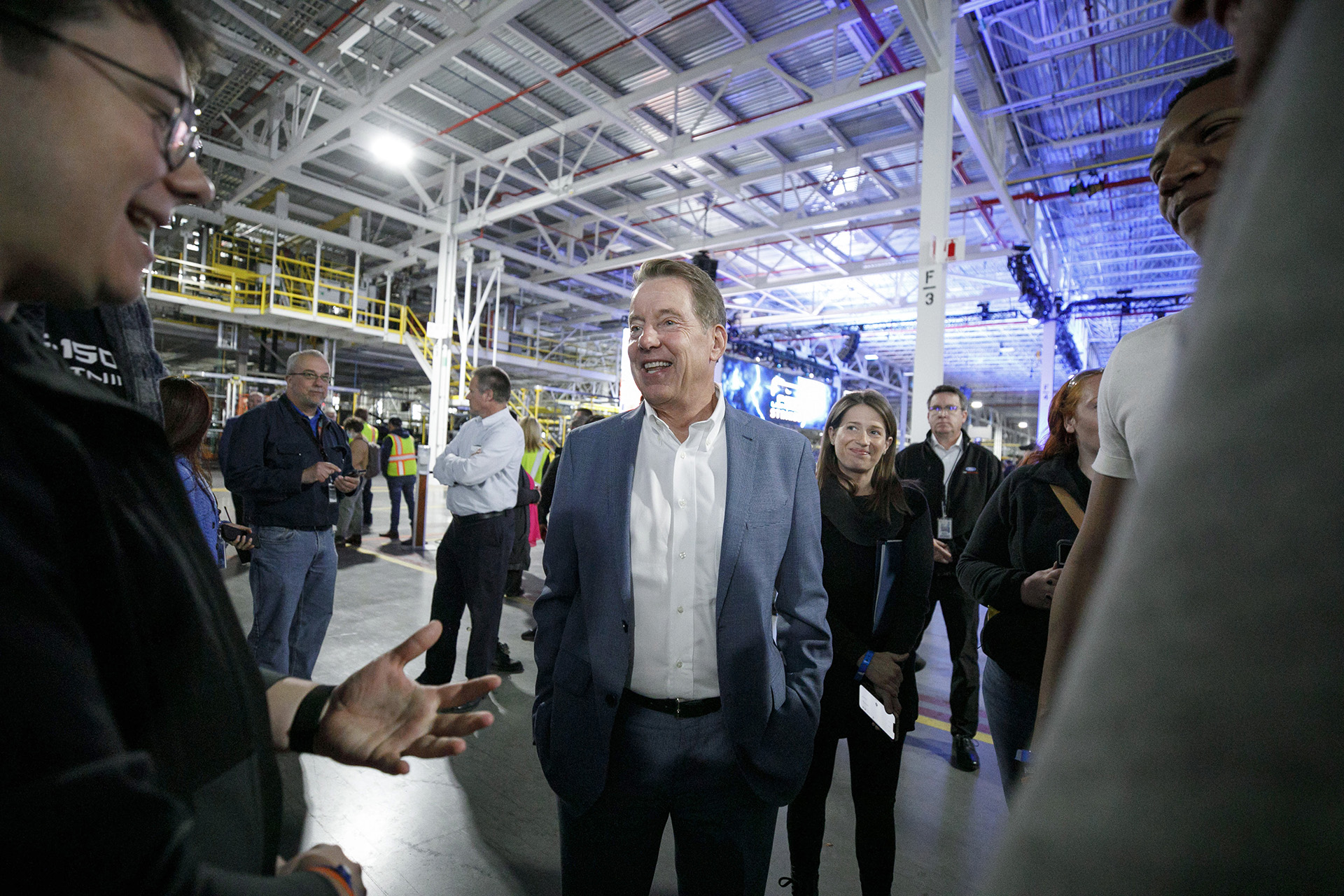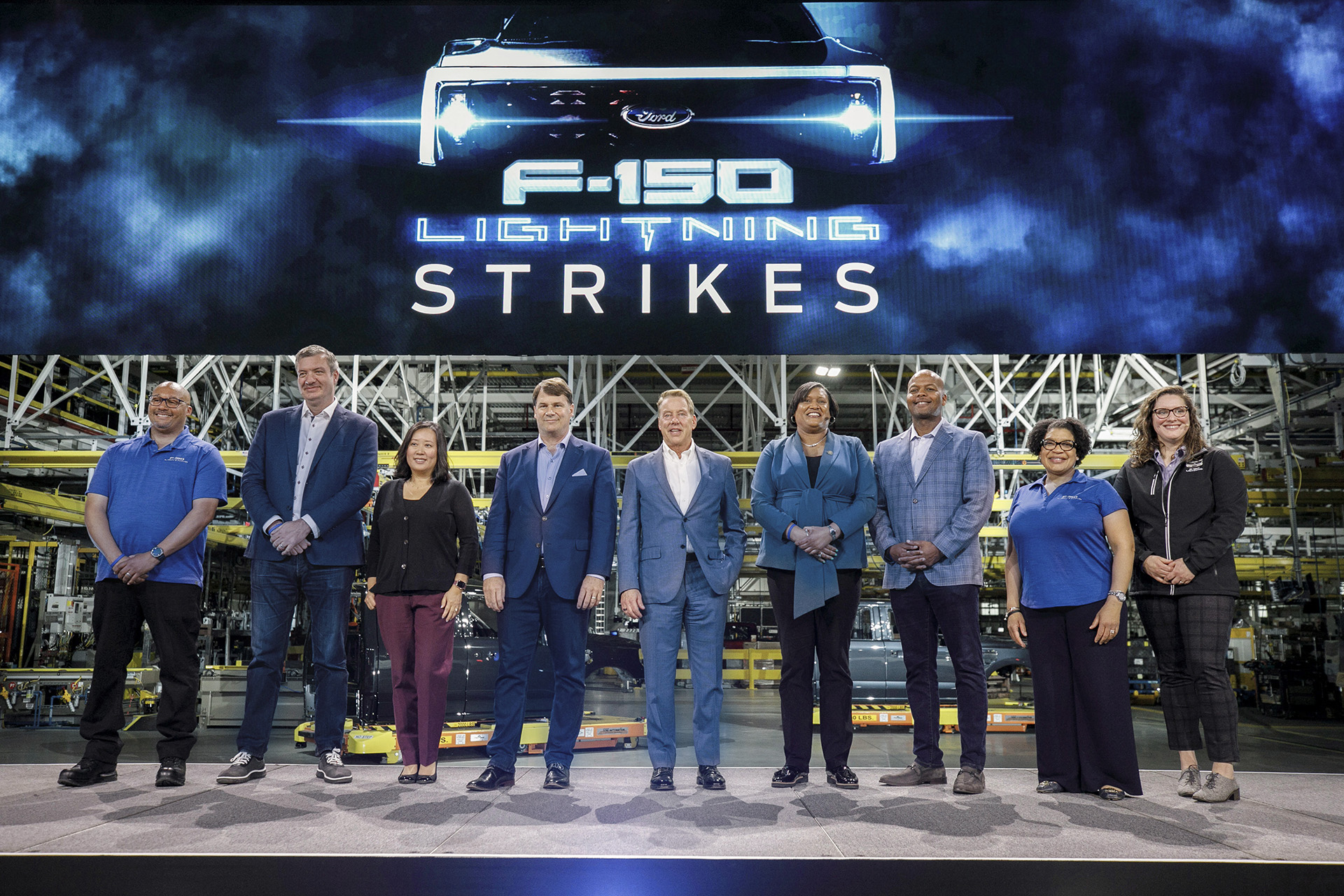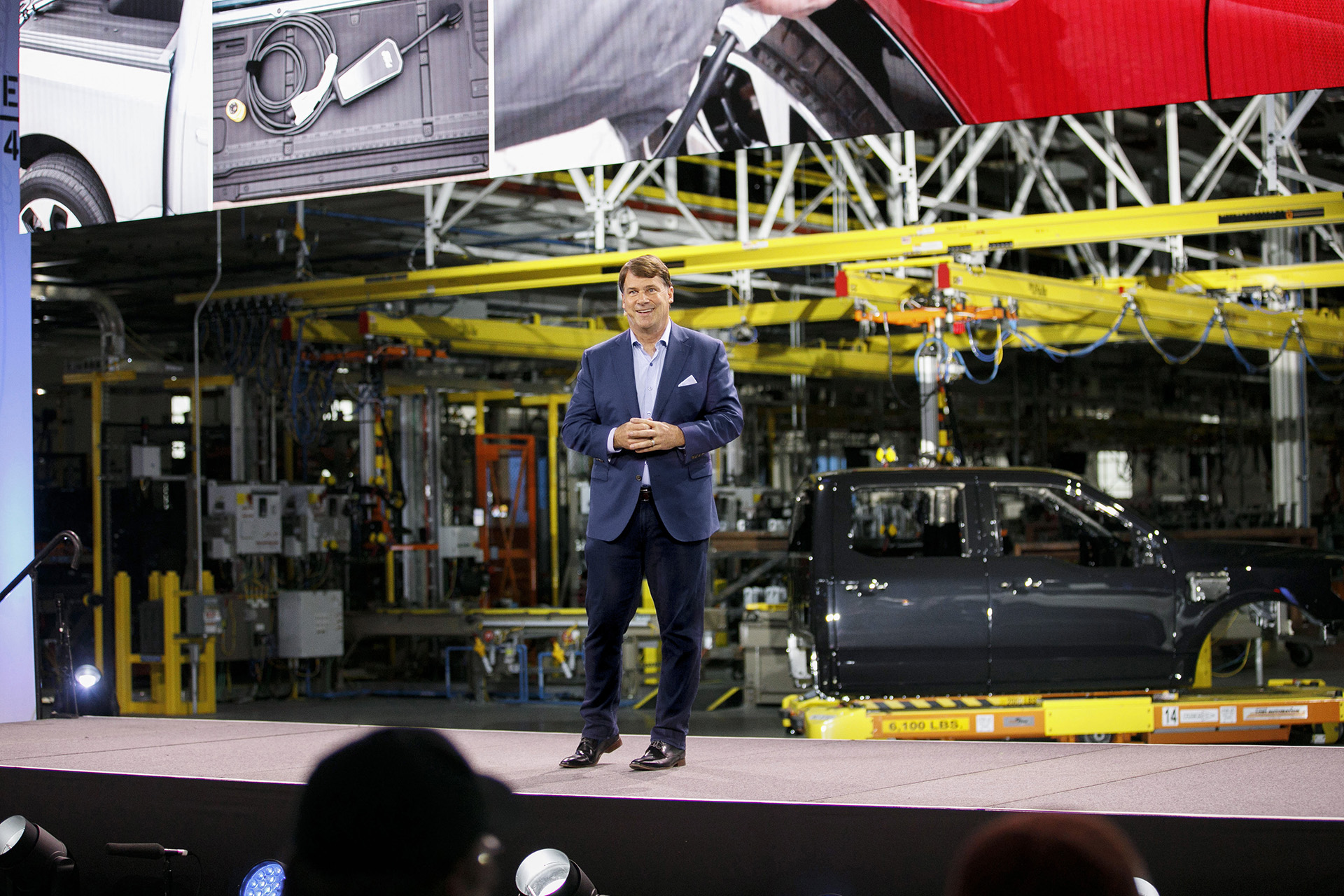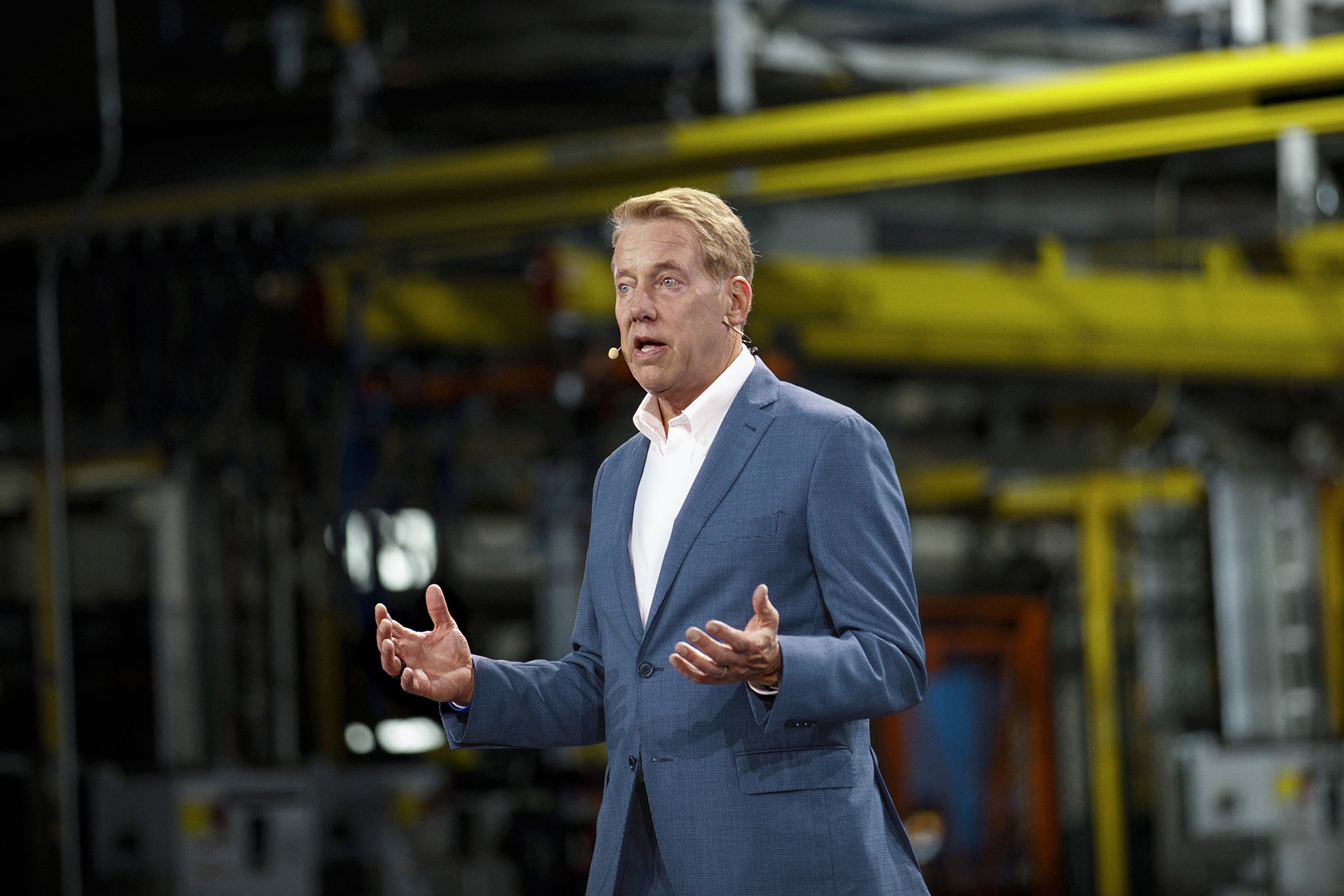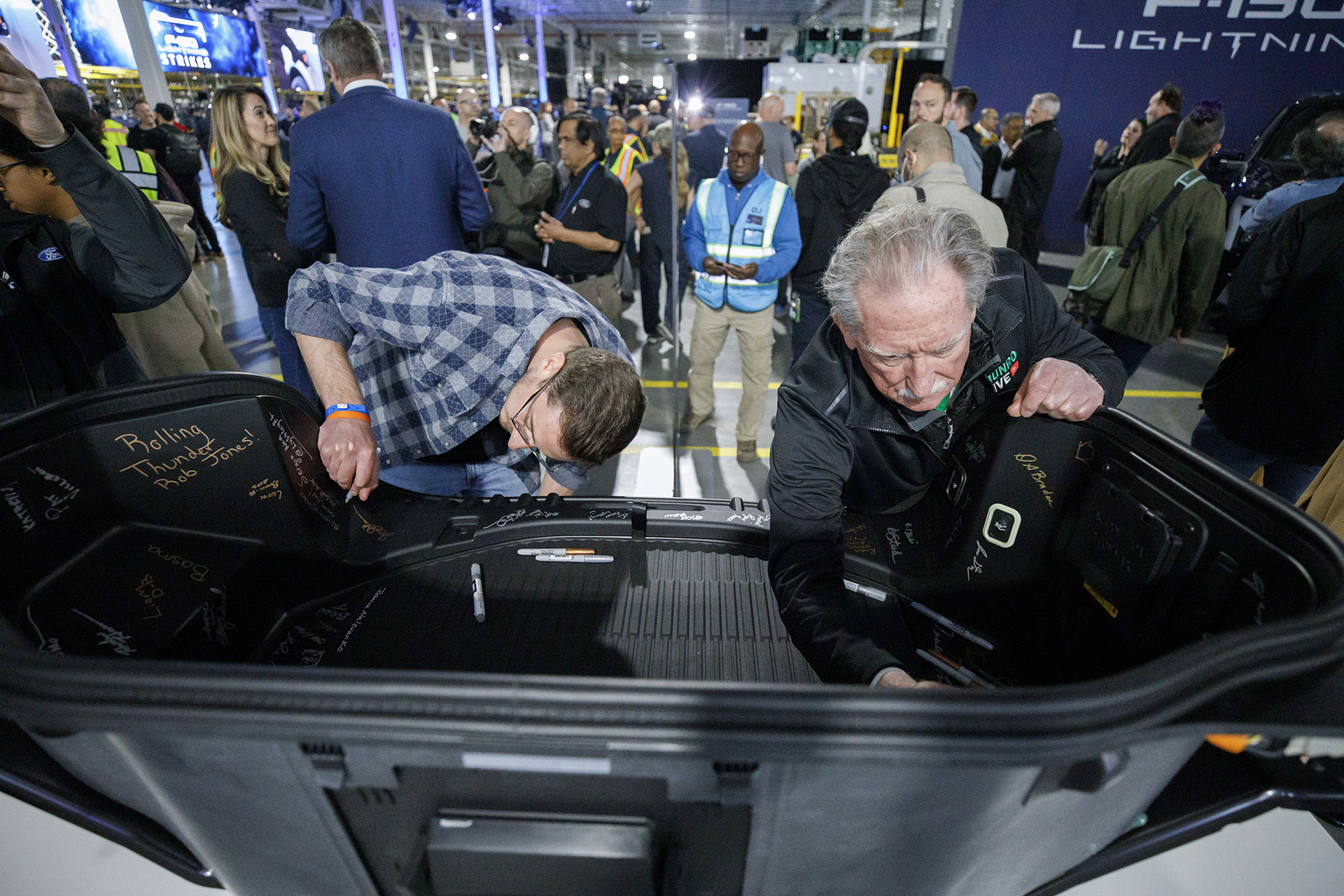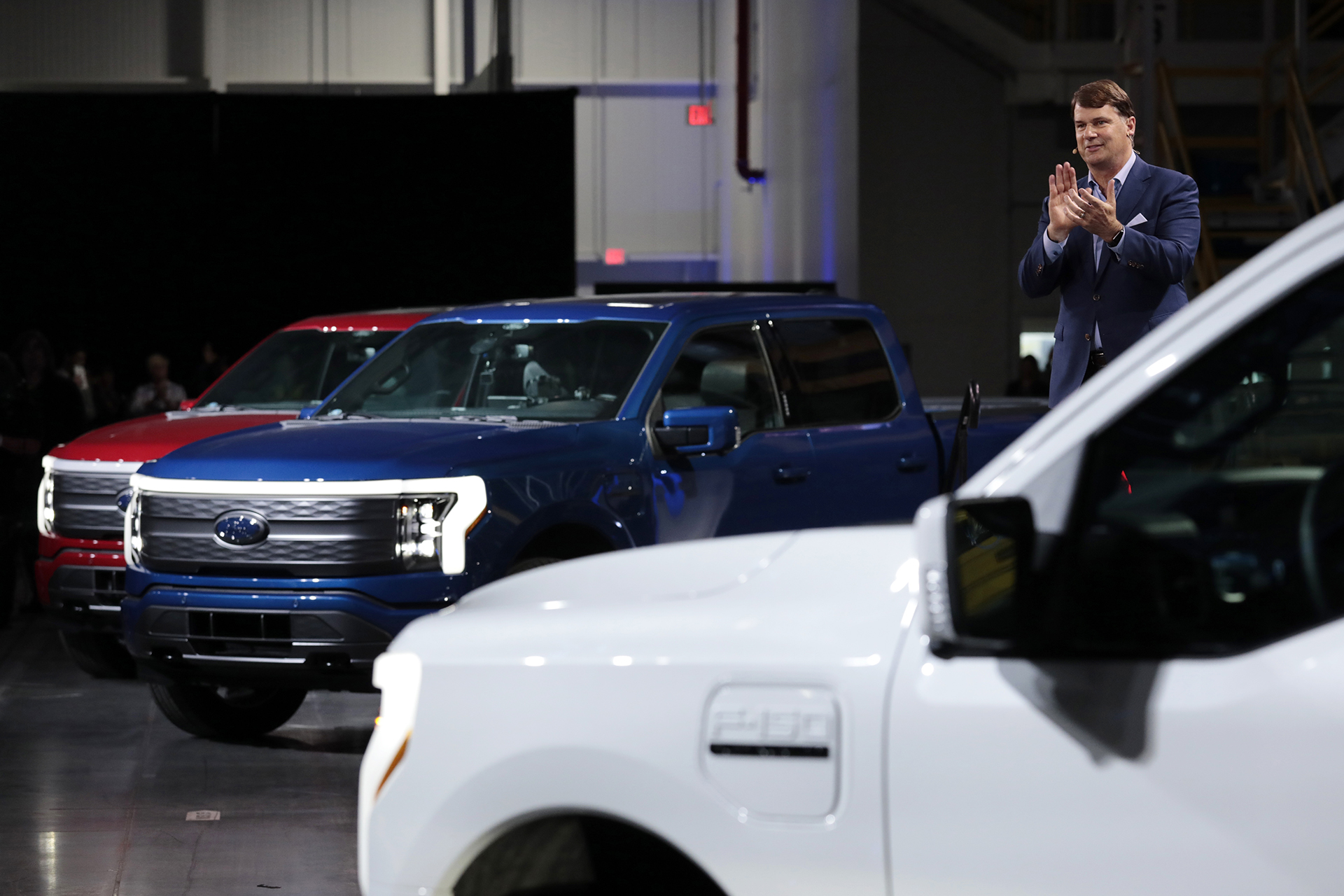Ford unveiled the brand new electric F-150 Lightning during an event at the Rouge Electric Vehicle Center, but CEO Jim Farley was already looking to the future and shared some details about another electric truck that’s on its way.
“We’re already pushing dirt down in Blue Oval City in Tennessee for another electric pickup truck that’s different than this one,” Farley said to the audience in Dearborn, Michigan. Blue Oval City is the brand’s massive $5.6 billion facility in Stanton, Tennessee which will produce the electric F-150, its accompanying batteries, and this new electric truck when it opens in 2024.
Ford already has two other trucks in its lineup, the mid-sized Ranger and the compact Maverick. Either one of these trucks could do well with an electric powertrain, but it’s also possible that the vehicle Farley mentioned is a completely new model and not one based on an existing platform.
Farley spoke to Automotive News following the release and provided a little more context about the statement: “It’s another truck,” he said. “This is not our only truck. We said very clearly we want to be the leader in electric pickup trucks.”
Read More: Ford Begins Production Of The F-150 Lightning At Historic Rouge Plant
The brand plans to sell 600,000 electric vehicles globally over the next two years, and electric pickup trucks will make up a large portion of those sales. Those numbers would make the brand the second place EV maker to Tesla, but Farley says that he’s gunning for the California brand.
“With the huge investments – $50 billion in EVs, battery manufacturing, and our expanded lineup which you have not seen yet – we plan to challenge Tesla and all comers to become the top EV maker in the world,” he said.
Farley also wasn’t shy about throwing some shade toward Elon Musk’s EV company, while also touting the capabilities of the Lightning. “The ride is so smooth you’d swear you were in a Lincoln,” and it “can even charge other EVs, for your friends who own Teslas.”
Ford began production of the F-150 Lightning on April 26, 2022, and hopes to scale up to 150,000 vehicles manufactured annually in 2023.



